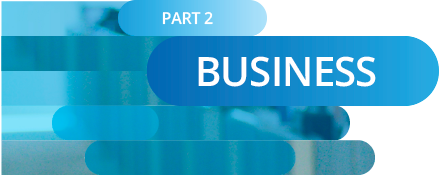

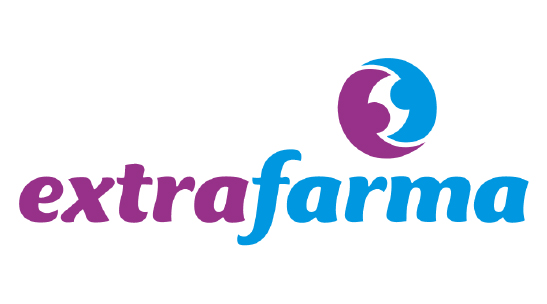
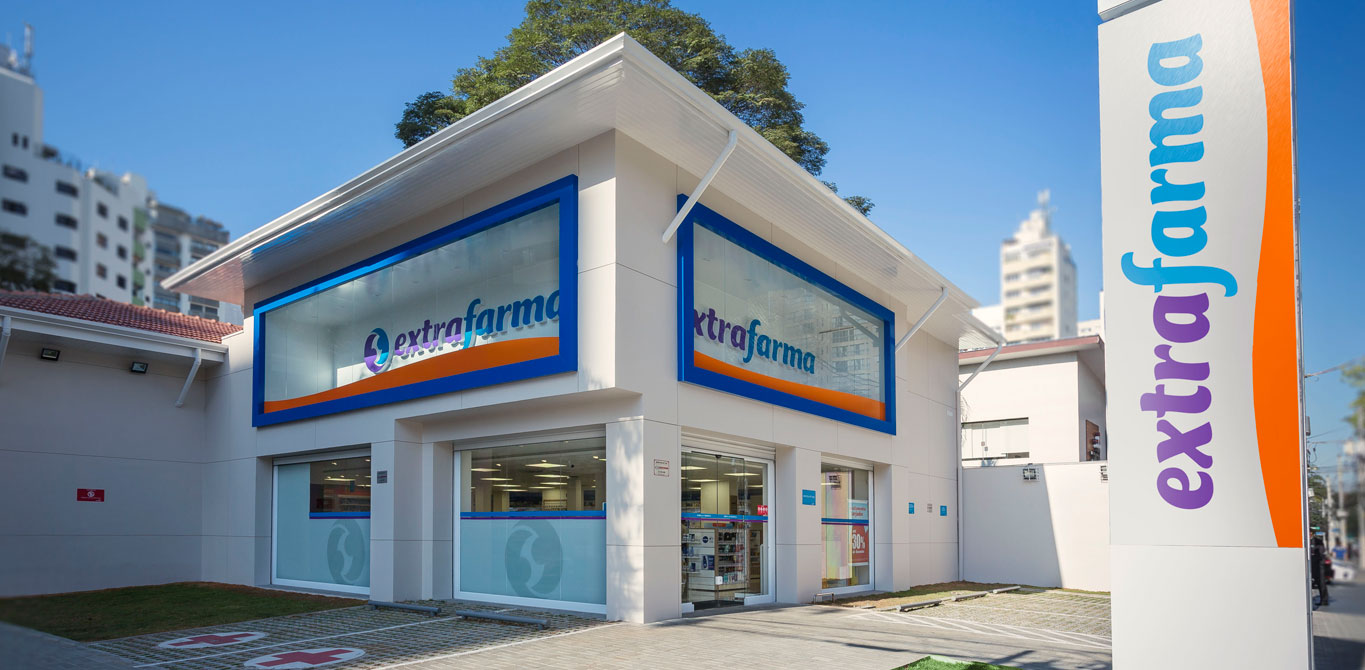
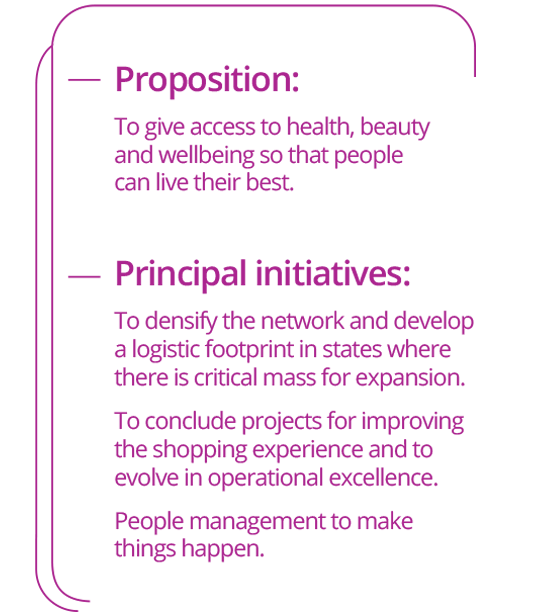
Extrafarma ended the year 2018 with 433 stores and reaching fifth position in the Brazilian Association of Pharmacies and Drugstores (Abrafarma) ranking, opening 68 units during the year, concentrated principally in the states of São Paulo, Bahia and Pernambuco.


In June 2018, Extrafarma completed the implementation of a new retailing system with gains in both productivity and improved stock management as well as providing a better shopping experience for customers. However, during the stabilization phase of the new system, Extrafarma’s operations were hampered, notably due to stock outages at the stores.
The more intense competitive environment during the year also had an impact on expansion, the maturation process of the new stores and improvements in the retailing management model. Set against this background, Extrafarma recorded gross revenue in 2018 of R$2.1 billion, a growth of 8% year-over-year due to growth of 11% in retail sales (greater number of stores and an annual readjustment in medication prices).
In 2018, general, administrative and selling expenses rose by 15% in relation to the preceding year, principally due to the larger number of stores. Excluding the effect of new stores opened during the year, general and administrative as well as selling expenses would have declined by 3% in relation to 2017, principally due to productivity gains and reduced overheads notably in the form of payroll expenses and card fees.
In turn, EBITDA was a negative R$47 million due to the impact caused by the implementation and stabilization of the new retailing system, a non-recurring process involving the elimination of poorly performing units, and the greater number of stores still at the maturation phase.


During the year, the Company invested R$118 million, principally in the opening of new stores and IT with the focus on improving the shopping experience and on operational excellence.
Extrafarma endeavors to create or adopt solutions which make the difference in people’s lives. For example, in the city of São Paulo, the Company rolled out the first pharmaceutical services room at one of its drugstores in the Bela Vista district. There consumers can access services which contribute to a better quality of life including vaccines, blood sugar tests, blood pressure, ear lobe piercing, among others.
In 2018, the Company also created the Extrafarma Excellence Program to stimulate quality in customer service and in store processes, giving greater clarity and transparency to the expected model of store management. The Program facilitates the identification of the principal opportunities for improvement, the sharing of best practices, recognition of good performance as well as incentivizing continuous evolution.
The store network offers other benefits such as the Clube Extrafarma, a customer loyalty program which offers discounts to registered clients for the purchase of a series of products in exchange for accumulated points. Points earned under the Múltiplos and Km of Advantages loyalty programs can also be exchanged. At the end of 2018, Clube Extrafarma had 8 million members, an increase of 29% in relation to 2017. Customers can sign up for Clube Extrafarma membership via the internet (www.clubeextrafarma.com.br) or directly at the stores.
Again, clients can register for the Medications Benefits Program, through the intermediary of which the network offers special discounts on selected medications.
Through its website and social network channels (Facebook, Twitter and Instagram), Extrafarma also publishes healthcare suggestions and wellbeing tips as well as promotional initiatives such as Unbeatable Extrafarma (Extrafarma Imbatível) – short duration price cuts.
The majority of Extrafarma’s more than 7 thousand employees, distributed across 13 states, is in direct contact with the public and for this reason, one of the most highly rated qualities recognized in the selection and retention of talents is the “spirit to serve”. The Company looks for those professionals who demonstrate an increasingly more dynamic profile, focused on the client and on results, while in parallel, offering the best conditions for ensuring that staff remain motivated and highly trained. In 2018, Extrafarma invested in training to increase the retention of these professionals as well as creating greater career opportunities, contributing to a reduction in turnover, rates for which were 32%, less than the 40% average for the sector.
In addition, Extrafarma ran more than 358 thousand on-site and remote courses. The number of professionals trained during the year was 3.6 times greater than in 2017 thanks to the expanded access to the Extrafarma DNA portal’s remote learning facility and the intensification of on-site modules, many of them in partnership with suppliers.



| Job category | Man | Women |
|---|---|---|
| Senior Management | 1 | 0 |
| Management | 3 | 1 |
| Managerial Staff | 21 | 4 |
| Coordination/Supervision/Consultant | 64 | 30 |
| Administrative | 102 | 164 |
| Operacional | 2,491 | 4,232 |
| Interns | 5 | 6 |
| Young Apprentices | 65 | 88 |
| Total | 2,752 | 4,525 |
| New hires and turnover – 2018 | |
|---|---|
| Hired | 2,398 |
| Terminated | 2,043 |
| Turnover rate (%) | 32 |

The activities of the employees at Extrafarma are now based on the Company’s new reason for being philosophy and reflected in Identity, Belief and Proposition (see below).
The guidelines have been propagated internally through initiatives such as the Leaders Development Program where the purpose is to stimulate self-awareness with the support of management tools and to prepare professionals to lead according to the Company’s proposition.
One of the Company’s concerns is not only retention but the attraction of talent. Among the principal ways of joining the work force is the Trainee Program, through which job vacancies are offered in the stores and in the administrative area. In 2018, there were 1,081 candidates for the program, 724 of which were seeking a position in the administrative sector and 357 in the pharmacies, 5 and 22, respectively being hired.
Enhancing diversity is also a focus of Extrafarma, launching in 2018 the Maturity Program, opening the doors of the labor market to the over-fifties. The Company takes the view that experienced professionals are able to establish relations of greater empathy with customers. In addition, the more mature can set an example for the younger employees. A total of 70 professionals were hired during the year under this scheme.
To stimulate diversity in the stores and reflecting current social realities, Extrafarma has begun to hire refugees through the medium of partnerships with Institutes and NGOs which work with this group. The Company has hired nationals from Togo, Haiti, Syria and Venezuela as employees under the scheme.
Care with the teams’ occupational health and safety is covered by a series of initiatives, the Company reporting during the year 19 accidents with time off work and representing a rate of 1 per million hours worked.

In its strategic planning, Extrafarma has been investing heavily in the review of its systemic platform. The focus here is on establishing the necessary foundations for improving its customers’ shopping experience as well as the development of operational excellence. This initiative is designed to create the basis for the next stage of innovation and digital transformation, inserting clients and consumers at the heart of the business model and thus providing them with a personalized and multi-channel service.
Among other initiatives in this context, for the first time, Extrafarma took the CowParade exhibition, one of the world’s largest open air art exhibitions, to the North and the Northeast of Brazil. The Company sponsored the editions held in Belém (PA), in 2016, in Recife (PE), in 2017, and in Fortaleza (CE), in 2018. In this event, sculptures of cows are stylized by local artists and exhibited at various public places in the city, including in front of the Extrafarma stores. Besides democratizing access to art, the exhibition fosters social responsibility: at the end of each edition, the exhibits are auctioned off and the cash donated to local charities. The project has already been responsible for raising more than R$6 million for social initiatives, more than R$800 thousands of which coming from the three events sponsored by Extrafarma.
Extrafarma operates a Health Services Waste Management Plan, the operationalization of which is the responsibility of outsourced companies authorized by the Brazilian Food and Drug Administration – Anvisa. These companies provide transportation and treatment for the final disposal of expired or damaged medications, syringes, needles and gauzes. Additionally, all expired medications, products suspended for sale or with damaged packaging are sent for incineration by companies accredited by the environmental protection agencies and authorized by Anvisa.

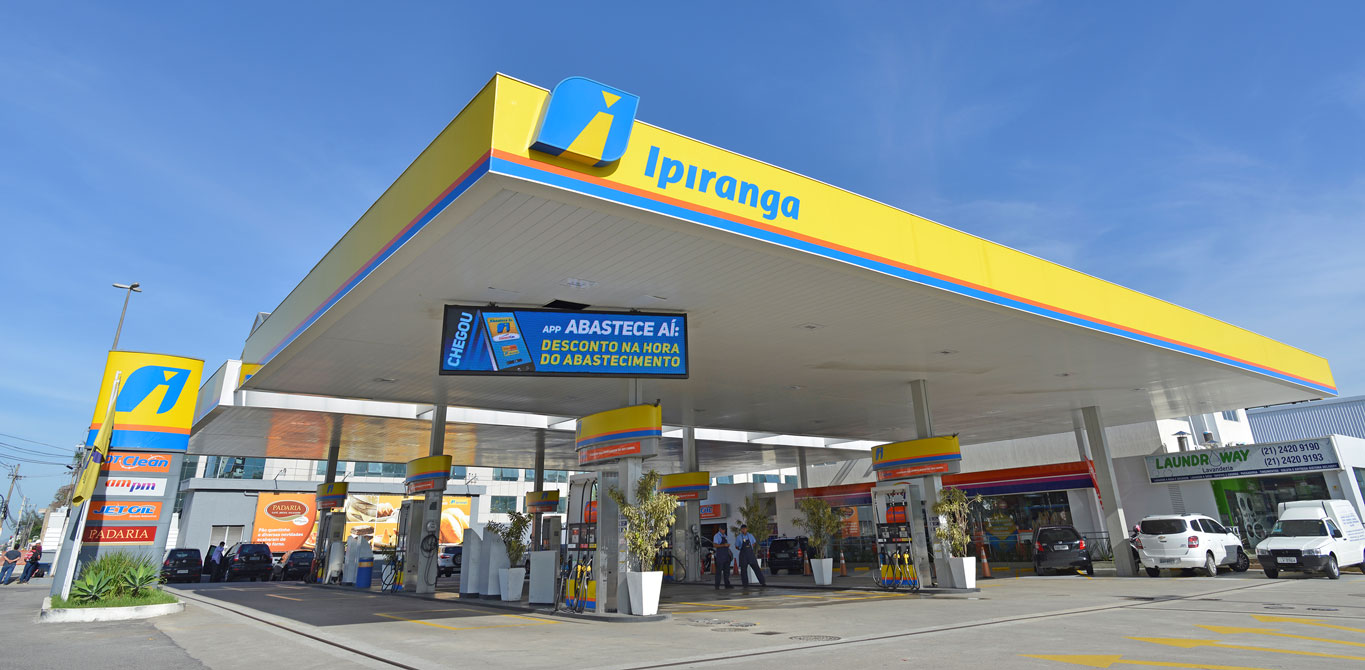

With more than 7 thousand service stations in 26 states and the Federal District, Ipiranga is one of the largest fuel and lubricant distributors in Brazil as well as being leader in the convenience store segment with 2,493 am/pm stores, Jet Oil automotive services having a further 1,772 units. The Company also offers the Km of Advantages (Km de Vantagens), the leading loyalty program in Brazil with more than 30 million members and about 160 partner companies offering benefits to customers.
The following map shows Ipiranga’s operational units – fuel distribution bases where it operates – giving it comprehensive coverage for its activities nationwide.
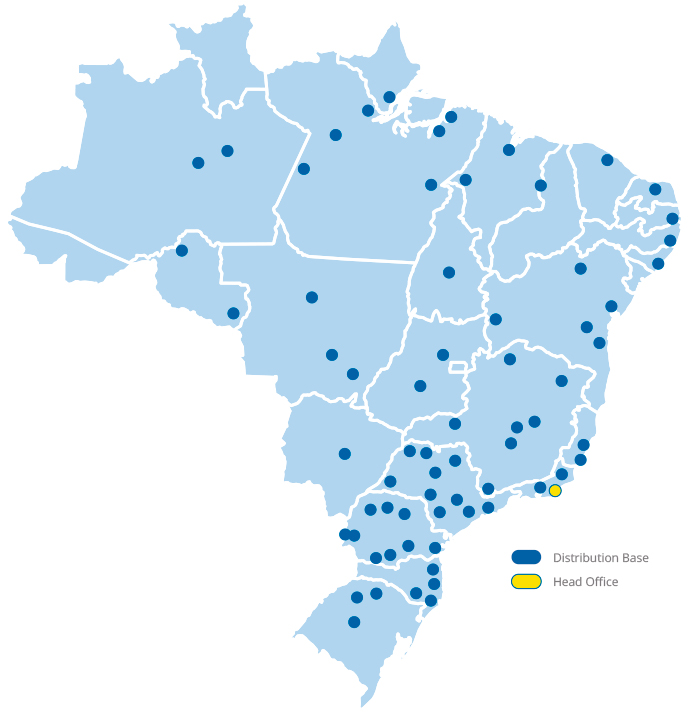
In a year when the number of branded service stations increased year-over-year by 4%, the Company and the Brazilian fuel sector experienced tighter margins due to a series of factors, more especially economic stagnation with increased unemployment and a reduction in purchasing power combined with higher fuel prices. It was precisely this scenario which triggered the truckers’ strike in May, compromising still further market performance.
Ipiranga’s sales volume rose 1% in relation to 2017, diesel volumes increasing by 2% and in line with the gradual recovery in the economy. Volumes sold by Ipiranga to the light vehicle Otto cycle segment reported a 1% decline in sales relative to the preceding year, decreasing until July and then recovering throughout the second half. Increasing ethanol output in 2018 contributed to the decline in prices of the product, driving up sales by 45%, while sales of gasoline fell 14%.

The trucker’s strike caused notable losses for the business, road blockades at the distribution bases preventing delivery of products and shaving an estimated 4% off sales volume. Adding in the associated extraordinary costs with logistics and security, losses amounted to R$40 million. In addition, the reduction of R$0.46/l in the price of diesel produced a one-time loss on inventory of R$147 million, due to the accounting of volumes held in storage at average cost.
Despite market turbulence in 2018, the Company was successful in achieving one of its goals for the year: recuperating market share lost in previous periods. According to National Association of Distributors of Fuels, Lubricants, Logistics and Convenience (Plural) data, at the end of 2018, Ipiranga had a 31% share of Plural’s market for gasoline, ethanol and diesel fuels.
Ipiranga reported net revenue of R$76,473 million, a growth of 14% in 2018, due largely to the movement in the average costs of diesel and gasoline with consecutive increases from January to September in line with international price parity and the devaluation of the Real against the US Dollar. Factors also driving revenue growth were the increase in fuel taxes (PIS/COFINS) in July 2017 and the strategy of constant innovation in services and convenience at the service stations, enhancing customer satisfaction and loyalty.

General, administrative and selling expenses increased 7%, reflecting the consolidation of expenses of ICONIC (both the additional expenses of Chevron’s lubricants operation as well as the extraordinary expenses involving the subsequent startup of the joint venture), which began operations in December 2017. If the latter are excluded, this item would have been unchanged compared with 2017, thanks to various steps taken to reduce expenses.
Ipiranga’s adjusted EBITDA amounted to R$2,052 million in the year, 33% lower than 2017. This was a reflection of various factors: the truckers’ strike – which had an impact on sales volume, on variations of margin and on higher non-recurring costs and expenses in the period –, those extraordinary expenses already mentioned and incurred with the consolidation and startup of the ICONIC operation and finally, trends in fuel costs during 2018.

Investments in the business amounted to R$957 million, of which 50% were allocated to the expansion of the service station network, am/pm and Jet Oil franchises and logistics bases. The other half was dedicated to modernization and maintenance of the network and logistical infrastructure. Of the total invested, R$388 million relates to net plant, property and equipment and additions to intangible assets, R$390 million to contractual assets with customers (exclusive rights) and R$179 million, to the drawdown of financing for customers and rental advances, net of repayments.
In 2018, Ipiranga revised its business strategy in readiness for the future and an expected revival in Brazilian growth. In this respect, the Next project focuses on the development of the pillars to be strengthened over the next ten years to consolidate the Company as a platform of convenience businesses which facilitate people’s daily activities and mobility. As from 2019, Ipiranga is to adopt a new management model with a more horizontal and flexible structure, permitting it to react in a more timely manner to market demands. The idea is to focus on the management of the core business and in parallel, invest in the development of new avenues of growth. The scope of the work was designed to capture the opportunities which will appear with the transformation of the sector, allowing the Company to take the lead in future tendencies.
One of the measures proposed is to convert the am/pm and Jet Oil brands into business units with an even greater focus on growth potential, which includes their increased penetration in the overall business of the network’s service stations. The intention of continuing to invest in digital solutions to enhance customer loyalty has also been announced together with the consolidation of the analytics area for maximizing the use of market intelligence resources. The strategy also seeks the continued enhancement of the Ipiranga brand, Top of Mind in Brazil, and to establish closer ties with the resellers.
Early in 2018, Ipiranga formally announced to the market the startup in the ICONIC operation, a joint venture with the American Chevron. The new enterprise has integrated the areas of development, production, distribution and sales of lubricants, greases, fluids and coolants of the two companies. ICONIC began its existence already with three industrial plants in operation with the capacity to produce 340 million liters of products with a portfolio of more than a thousand items, present at points of sale nationwide. In addition, it has 30 distribution centers and 50 authorized distributors. At the end of 2018, it accounted for 27% of the domestic market for finished lubricants, according to data published by Plural. One of the highlights of the whole joint venture process was the integration of systems and the capture of 50% more synergies than was initially forecast. In line with the principles of transparency and ethics of its controlling shareholders, in 2018 ICONIC launched Compliance ICONIC: the Code of Ethics and Corporate Anti-corruption Policy and the Code for the Relationship with Public Officials instructing its 650 employees on the rules and conduct which the business sees as a priority.
Ipiranga employs approximately three thousand direct and a further 80 thousand indirect employees, always seeking to ensure the good standing of its partners. During the year, it offered 125 thousand hours of training to its work force and more than 63 thousand hours to the resellers, large clients and their teams. All employees receive an annual evaluation of their performance which permits an assessment and recognition of deliveries and behavior, ensuring compliance with strategy, creation of value and organizational culture. The evaluation includes a quantitative section which takes into account the meeting of goals, and a qualitative one wherein competencies aligned to the businesses are examined.
The Ipiranga University provides the strategic tools for formation, training and self-development with on-site and online content as part of the process of developing and/or strengthening skills and knowledge both for the Company’s employees and also the resellers and their teams. One of the main features of 2018 was training given on the competitive Compliance theme to 28 groups made up of both employees and clients. Prepared on the basis of current legislation and information from official bodies, more particularly the Brazilian anti-trust authority (Cade), the course aims to reinforce guidance for both employees and reseller clients on best practice for exercising free competition to the full.
During the year, the University also sought to strengthen the development pillar of the Interns Program through the offer of courses for new talent in the business. Ipiranga recruits young people annually to take part in the program, the activities of which are constantly being updated in line with market developments. Successful candidates are able to participate in the practical routine and processes and projects of the Company. During the year, the interns also underwent training to expand their knowledge of the business through for example technical visits to the Distribution and am/pm Supply Bases and lectures on brand positioning and strategy – presented by Executives of Ipiranga – and on sector tendencies.



| Job category | Men | Women |
|---|---|---|
| Senior Management | 1 | 0 |
| Management | 8 | 0 |
| Managerial Staff | 84 | 12 |
| Coordination/Supervision/Consultant | 297 | 57 |
| Administrative | 1,011 | 443 |
| Operational | 713 | 10 |
| Interns | 97 | 61 |
| Young Apprentices | 42 | 21 |
| Total | 2,254 | 604 |
| New hires and turnover – 2018 | |
|---|---|
| Hired | 430 |
| Terminated | 502 |
| Turnover rate (%) | 17.7 |

Ipiranga has a committee dedicated specifically to accompanying sustainability initiatives for its inhouse stakeholders and is constantly seeking to engage its employees on the theme. In this context, it circulates an e-newsletter, which in 2018, published a column highlighting employee initiatives in the field of sustainability, as recounted in their own words, inspiring others to similarly take part. The committee also runs awareness campaigns on waste separation, a special lunch on Environment Day – with a planned menu ensuring that full use is made of the food – and the campaign for collection of discarded electro-electronic goods for recycling.
The business also provides direct employees with the Viva Mais quality of life program, consisting of actions and wellbeing guidance campaigns. Within the scope of this same initiative, there are free influenza vaccinations and the provision of instructional reports via internet on such questions as diabetes, dyslipidemia, high blood pressure and tips for healthy eating and the practice of physical exercise. Through the Medical Control and Occupational Health Program (PCMSO), the Company offers various medical tests for avoiding possible illnesses and promoting good health.
Ipiranga’s Occupational Safety Program focuses on inspections to the units, investments in the improvement of the physical conditions of the installations and the establishment of guidelines to be followed by contractors and transporters. During the year, one of the areas of focus was the promotion of the Attitude of the Owner among the members of leadership, for stimulating them to act as catalysts of change in behavior (unsecure) in the units. Ipiranga has also adopted a new standard in the Emergencies Attendance Plan together with the behavioral observation process for recognizing both those employees seen to act safely as well as providing guidance to those whose actions are deemed unsafe. In addition to these actions, the Company also runs communication campaigns with cultural actions for engagement in the use of Personal Protection Equipment (PPE), preventive campaigns on avoiding accidents during the daily commute and active care.


Through the Volunteer Program, the business encourages employees and interns to dedicate their time and skills to educational initiatives for the benefit of communities surrounding their units. During the year, four thousand young people from 30 Brazilian cities enjoyed the benefits of these initiatives.
Ipiranga’s Rio de Janeiro Young Apprentices were the beneficiaries of the Junior Achievement’s The Advantages of Staying in School (As Vantagens de Permanecer na Escola) and Connected with Tomorrow (Conectados com o Amanhã) programs: the first reinforcing the importance of continued study, with a focus on the concepts of employability, education and qualification; and the second for stimulating reflections on the future and preparations to join the labor market in addition to providing guidance on career perspectives.
Among Ipiranga’s initiatives for attracting and developing brand loyalty among consumers is the offer of differentiated digital solutions which bring agility and value to people’s consuming experience. One of the main services at the disposal of Ipiranga’s clients is the payment app Fill up There (Abastece Aí), which offers discounts on fuel purchases in exchange for points in the KMV program, a customer benefit which is gaining increasing traction both in significance and growth for the businesses. In 2018, the number of clients using the app for the first time reached the 1,25 million mark, an indication of the potential that exists for the use of payments technology in the Network, and ranking among the most demanded in the mobile app stores.
In 2018, corporate clients were able to enjoy the benefits of a marketplace, the Ipiranga Corporate Club, accessible through the Ipiranga Network Portal: www.portal.ipiranga. A pioneer in the sector, clients can access the platform for spare parts, tires, batteries, personal protection equipment and office materials at attractive prices. In addition to accessing this broad range of products, Corporate Club’s members are guaranteed a cashback on each transaction executed. Amounts accumulated can be used as a discount in the purchase of diesel fuel. Launched in São Paulo as a pilot operation, the Ipiranga Corporate Club is a new tool for incentivizing loyalty to the Ipiranga brand. The platform covered two states at the end of the year and there are plans for expansion to the South and the Southeast regions in 2019.
Ipiranga also invests in promotions and initiatives through social media to engage and enhance the brand relationship with its consumers still further. For example, it took 27 people – 15 from the general public and 12 influential youtubers – to the Rock in Rio Lisbon concerts. To take part, internauts had to post on social media a response to the question “What madness would you commit to be able to go to Rock in Rio Lisbon?” and to use the #RiRLisboaAMPM hashtag. For the influential youtubers, the challenge was to publish a video showing what they could buy in 30 seconds in an am/pm store to spend the whole day at Rock in Rio Lisbon. Another initiative in the digital field that resonated well among the public was the launch of the Memes Creation Hotsite: www.perguntaadeque.ipiranga. This is a channel through which Ipiranga transmitted images of its publicity campaign 2018 for users to create memes set against the background of different scenes.
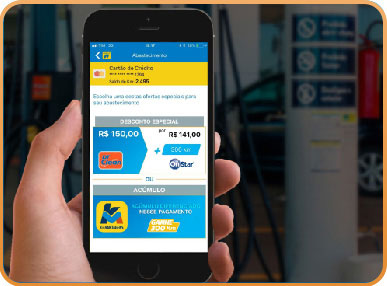
The Company is seeking to give greater visibility to a series of sustainable development initiatives with the public, launching #HereWhereSustainabilityHappens (#AquiOndeSustentabilidadeAcontece) stimulating the creation of a hotsite with videos on Company actions in this field. The idea is to convince clients and consumers of the brand to adhere to actions or adopt in their daily lives, good practices which benefit society. One such initiative is the Ipiranga Zero Carbon Program where Ipiranga offers a series of options so that its clients can neutralize their vehicle emissions. Km of Advantages allows kilometers to be exchanged for carbon credits and emissions resulting from purchases, whether fuel or products and services acquired in the am/pm and Jet Oil stores, can be neutralized free of charge using the Ipiranga Cards. Through the Service Station on the Web (Posto na Web) facility, consumers can buy fuel which is neutralized via website.
For Ipiranga, the longstanding relationship of trust with its resellers is not negotiable, being the motivation which drives the Company to continually contribute to the upgrading of resellers’ activities and increased gains. To help them improve the management of their businesses still further, in 2018, the Company ran the Corporate Education Program in partnership with HSM, the largest corporate education Company in Brazil. With content transmitted both on-site and online, and even including an international chapter for training – in partnership with Pittsburgh University –, the initiative was instrumental in Ipiranga’s partners being exposed to best retailing practices. With the participation of 233 resellers, the activities had the support of lecturers with experience in both academic and corporate worlds.
Resellers as well as franchisees, suppliers and large corporate clients from the B2B market were also invited to take part in the Ipiranga Retail School’s learning paths involving methodologies such as webinars and gamification. The school offers on-site and online programs on themes such as products, services, sales and management. Ipiranga provides the necessary support so that this audience can efficiently transmit the benefits and differentials of the brand to the consumers as well as giving updates on current market challenges and tendencies.
The Company monitors the satisfaction of its clients and resellers annually, in 2018, the average level of satisfaction being 75%. The surveys take into account aspects such as delivery of orders, compliance, quality of products and service. During the year, 560 participants in the survey were interviewed by phone.
The Committed Ipiranga Supplier Program is the vehicle through which the Company incentivizes its leading partners to adopt practices and conduct which strengthen the commitment to sustainability, ethics and transparency. In 2018, the Company published a primer covering the principal socio-environmental and business issues in the Ipiranga Supplier Policy. The material covers themes such as anti-trust laws and practices, ethics, data security, occupational health and safety, training, the environment, social responsibility and respect for the worker. Its reading has been made obligatory for the enrollment of new suppliers and in addition, aspects relating to sustainability have been maintained in the monitoring of partners.
Ipiranga invests in the development of digital solutions which add value to its stakeholders and consequently its businesses. The brand is already recognized for its pioneering in the offer of products and services which facilitate the lives of clients and consumers not to mention the advantages they bring.
In 2018, Ipiranga became the first Brazilian company in the fuels sector to create a generic Top-Level Domain name on the internet, o .ipiranga. This innovation represents a more mature stage for the brand as far as the digital channels are concerned, giving more control and security to users who can now be sure that they are browsing a site which is really linked to the business.
In the context of digital initiatives and technology for driving the Network’s business, during the year, Ipiranga used digital intelligence and geolocation media tools for putting into practice several Cerca Digital campaigns for generating an increase in consumer traffic through the service stations and the franchise network. The campaigns are monitored and optimized to reach 100% of their potential, announcing offers for fuel and convenience to consumers within a radius of five kilometers from the service stations.
Another highlight was the launch of Pró-Frotas, the first fuel management app in the market. The new startup, a pioneer in this area, is Ipiranga’s partner in a preferential agreement for the accreditation of network service stations, the principal benefits in addition to aspects of volume and customer loyalty, being lower costs and shorter timelines for reimbursing resellers. With this application, fleet owners are not required to install any equipment in the vehicle or wait for the arrival of a card before filling up. Users are able to obtain preauthorization for expenditures together with the capture of the image of the vehicle odometer through the use of the solution and rendering the process more secure. The fuel supplied is identified automatically, thus avoiding fraud. Already in the first quarter of its launch in November 2018, Pró-Frotas had nearly 400 accredited service stations, 92 clients and more than 3 thousand vehicles and drivers using the solution.
The Company’s recent strategy has transformed Ipiranga into a Brazilian distribution company which is a pioneer in innovation and investment in technologies and in the partnerships necessary for introducing and rendering accessible the recharging of electric vehicles in Brazil. Drivers can already charge up their cars at 44 service stations in the Ipiranga Network. However, the highlight of the year in this area was the partnership with BMW and EDP for the installation of the first electric corridor in Latin America along the 430 kilometers of the Presidente Dutra highway linking Rio de Janeiro and São Paulo. Along this route, drivers can use six recharging stations installed at Ipiranga Service Stations. Investment in the project was approximately R$1 million and is in line with the expected growth in demand for this alternative fuel supply option.
The business is also concerned with monitoring its actions and their impacts, developing a customized management program, SIGA+, Health, Safety, Environmental, Quality and Social Responsibility Management System (HSEQSR) for the purpose. This is a continuous improvement instrument in which indicators relating to HSEQSR themes are informed and on the basis of which, actions for their further development can be adopted using PDCA (Plan, Do, Check and Act) methodology.
With SIGA+, Ipiranga audits the performance of each one of its units, these then being classified into five bands (bronze, silver, gold, platinum and diamond). The indicators are then (re)evaluated annually, as well as allowing an in depth diagnosis of the business and permitting an exchange of best practices.
In 2018, tools for strengthening the safety culture and its integration in the daily operations were included in the SIGA+ program. Job safety analyses were undertaken, work instructions defined, procedures unified in the Operations Manual and performance committees and incentive/engagement campaigns launched.
The commitment of the Ipiranga to society also translates into charters, principles or other economic, environmental and social initiatives developed externally to which the Company subscribes or supports. The list includes the Global Compact, Rede InPACTO and On the Right Side Pact (Pacto na Mão Certa). In addition, Ipiranga is associated to the Brazilian Business Council for Sustainable Development (CEBDS) and constantly seeks alignment with market benchmarks.
In accordance with legal requirements, the Company conducts potential process risk evaluations at its operational units in order to guarantee that its activities offer no risk to the surrounding communities.
For two years, Ipiranga has been sponsoring the Cinema on the Highway (Cinema na Estrada), bringing culture and leisure to drivers. In 2018 alone, eight films were shown free of charge at each one of the 70 events held at 30 service stations in the network, located in 21 municipalities and six states in the South and the Southeast regions. The activity attracted an audience of more than 7 thousand to the tractor trailer carrying the traveling cinema which has seats for 54, a screen for projecting movies in 3D and an am/pm bonbonniere serving popcorn and soft drinks. At each city, the Cinema on the Highway parks for two days, exhibiting four productions at each stop along its route.
Another roaming initiative is Health on the Highway (Saúde na Estrada), a program dedicated mainly to truckers and in its 11th year. Since launch, it has given more than 430 thousand people from 180 municipalities in 23 states, access to services such as preventive medical tests (blood sugar, blood pressure and visual acuity), vaccinations (in accordance with health department requirements of the municipality visited), evaluation of body composition (bioimpedance tests), barbers shop, massage and zen space. Beneficiaries also receive information on Sexually Transmitted Diseases and dengue fever, as well as the Truckers Primer with tips for wellbeing. In conjunction with Health on the Highway, Ipiranga uses its Sowing Citizenship (Semeando Cidadania) initiative for donating books to schools surrounding participating service stations.
In 2018, 120 events were organized under the auspices of the program, with 30 thousand people attended in 106 municipalities in 22 states. Data on beneficiaries and medical tests is stored to ensure future monitoring of their medical history.
Truckers likewise are the main target of Ipiranga’s actions within the scope of the On the Right Side program and involving initiatives conducted by the NGO, Childhood Brasil for eradicating sexual exploitation of children and adolescents on the highways. The Company assists in this by giving guidance on the theme and distributing instructional materials which indicate the channels through which drivers can denounce cases of abuse identified when on the road. The Ipiranga Service Station radio frequently announces the Dial Human Rights (Disque Direitos Humanos) facility. On May 18, National Combatting of Abuse and Sexual Exploitation of Children and Adolescents Day, the Company ran the Do your Best (Faça Bonito) campaign, installing LED banners with respect to the theme at highway service stations as well as publishing items in the network portal and preparing communication materials, disseminated through all channels, both internet and physically. During this initiative more than 8 informational/instructional fliers were distributed.
Ipiranga has also been a signatory to InPACTO – National Pact for the Eradication of Slave Labor (Pacto Nacional pela Erradicação do Trabalho Escravo) since 2014, maintaining an Action Plan for formalizing initiatives related to commitments on the theme. The Legal and Procurement areas together with the Sustainability Committee are all involved in this effort. In addition, the business refers to the Ministry of Labor’s Black List in its commercial relations and runs training sessions/workshops for inhouse teams and supply chain representatives.
The Friend of the Environment and the Community Service Station (O Posto Amigo do Meio Ambiente e da Comunidade) is another project which the Company intends to employ to bring Ipiranga and the communities still further together. The idea is that the network’s units should adopt actions in favor of this audience through fund raising campaigns or blood donations.
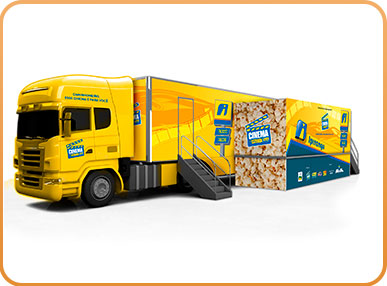
At the end of 2018, 1,182 units in the Ipiranga network were already eco-efficient, adopting solutions for the rational use of water and energy. The business encourages the growth of this model of service station and offers consultancy services to resellers on energy and hydraulic efficiency solutions for buildings. The work of the technical area for sustainable constructions is permanent and provides updates on new technology, always in the light of the cost-benefit relationship. In 2018, printed matter prepared for the resellers on ecoefficiency was still more focused on the day-to-day operations with tips on good practices which can be adopted with immediate effect, especially for the management of water and energy consumption.
During the year, Ipiranga also joined the PLVB – Brazilian Green Logistics Program (Programa Logística Verde Brasil), coordinated by the Freight Transportation Laboratory (LTC) at Universidade Federal do Rio de Janeiro (UFRJ). The PLVB endeavors to capture, integrate, consolidate and apply know-how for reducing Greenhouse Gas (GHG) emissions and further improve the efficiency of logistics and freight transportation in Brazil. The aim is to progressively construct a national program for logistical sustainability which will give autonomy to and train shippers, transportation operators, service providers and all entities supporting and/or active in these activities. As part of the program, the Reference Guide in Sustainability and the Application Manual: Good Practices for Freight Transportation have been launched, both publications for guiding companies on the choice, application, evaluation and listing of sustainable practices in logistical activities.
Since 2012, Ipiranga has prepared its Greenhouse Gas Emissions Inventory in accordance with ISO 14.064, Brazilian GHG Protocol Program specifications and data from the Intergovernmental Panel on Climate Change (IPCC¹). All indicators are audited by an outside company and published in the Public Register for GHG Emissions Protocol.
Through the Zero Carbon Program, the Company measures, seeks to reduce and undertakes compensation of GHG emissions emanating from its direct and indirect operations as well as offering its clients the option to compensate their emissions. Since launch, the program has already acquired more than 370 thousand tons of Carbon Credits.
Ipiranga’s sources of carbon credits are conservation projects, green areas in the process of recuperation and local development in the Amazon region. These projects are classified as REDD+², a mechanism whereby a price is attributed to the conservation of forests vulnerable to degrading. The actions implemented include everything from the promotion of empowerment and the improvement of the lives of the local inhabitants to the monitoring of threatened species. Personnel from Ipiranga spent a week in the forests and rivers of the region to visit the supported initiatives, filming the forest reserves which generate the carbon credits acquired. The Company has since produced a video based on this experience not only for dissemination inhouse, but also through Ipiranga’s social media for promoting the theme among clients.
The business is also constantly monitoring opportunities for expanding energy efficiency. This is work developed by groups internally from various areas, in 2018 being responsible for preparing an Energy Efficiency Guide with guidelines for optimization of electricity consumption at the operational units. In addition, a feasibility study was prepared for the migration of the units to the Free Energy Market, which provides access to electric energy from sources which are entirely renewable. In parallel, awareness campaigns are continually run for disseminating good practices of efficiency and economy for the units located across the length and breadth of Brazil.
In 2018, the amount of waste generated during the period fell principally due to the exclusion of the lubricants plant from Ipiranga’s environmental indicators, this unit being incorporated in the ICONIC joint venture with Chevron. In addition, modernization of the workplace environment at the head office was concluded and with it there was a significant drop in the amount of plastic, wood and paper/paperboard packaging disposed for recycling. Finally, there was no significant generation of civil construction waste sent for reuse given that the period was the off-season for work of this nature at the Company’s operational units.
In 2018, 39 processes were received due to non-compliance with the legislation and environmental regulations and a further 38 concluded. All legal and administrative processes are accompanied by the Legal area which presents its arguments in defense and, if the case, takes the necessary action and/or as requested by government bodies on environmental issues. However, about 80% of the cases are not the result of acts on the part of Ipiranga, but rather persons with which the Company has some form of contractual and/or legal relation and becomes involved only because of its joint liability pursuant to the environmental legislation.
GHG emissions (tCO2e) | 2016 | 2017 | 2018 |
Direct emissions (Scope 1) | 16,706.1 | 14,716 | 12,821.1 |
Direct emissions (Scope 2) | 1,750 | 3,047.6 | 1,563.4 |
Total emissions | 18,456 | 17,764 | 14,457.6 |
Total per ton of product sold | 0.001 | 0.001 | 0.001 |







Notable Companies (Empresas Notáveis): in this distinction, awarded by Consumidor Moderno magazine, companies from 26 sectors are analyzed in relation to branding, investments and value.
Franchising Ranking (Ranking do Franchising): two of Ipiranga’s brands are well placed in the ranking of the leading franchises in Brazil: am/pm in second place and Jet Oil, in fifth. The survey is undertaken by the Brazilian Franchise Association (ABF) and considers data from its more than 1.1 thousand members.
Brands of those who decide (Marcas de quem decide): Ipiranga features in the 20th edition of the survey by the Jornal do Comércio and by Qualidata, recognizing the brands most recalled and preferred by managers of companies and senior executives in the state of Rio Grande do Sul.
World Finance Oil and Gas Awards 2018: the Company received a distinction in the Best Downstream Service & Solutions Company category in Latin America. The award is sponsored by World Finance, a British magazine specializing in the economy and business and recognizing organizations and professionals, the initiatives of which continue to maintain the oil and gas business in the forefront of the sectors in relation to investments.
Best Services (Melhores Serviços – Estadão): the award presented by O Estado de S. Paulo newspaper, selecting the companies offering the best consumer experience. Ipiranga has featured in the ranking of the Fuel Service Station category since the surveys began. In 2018, besides maintaining the first place from the preceding year, the Company also came in first with the Km of Advantages and the first year loyalty programs were ranked as a category.
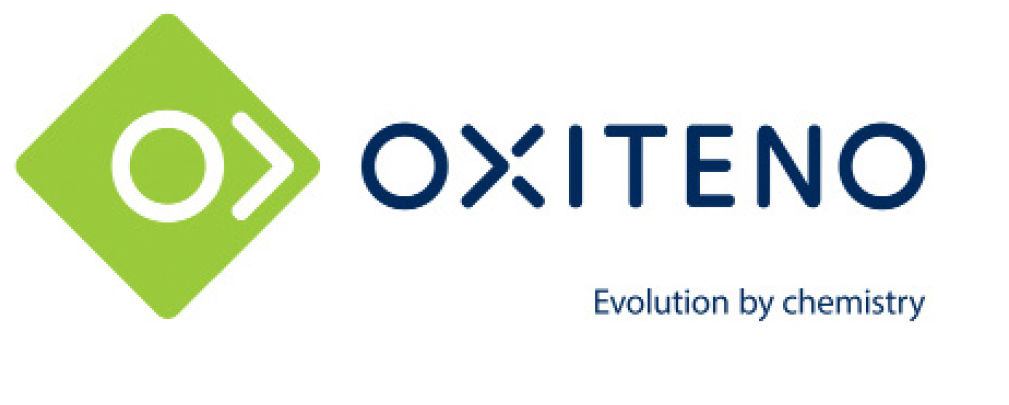
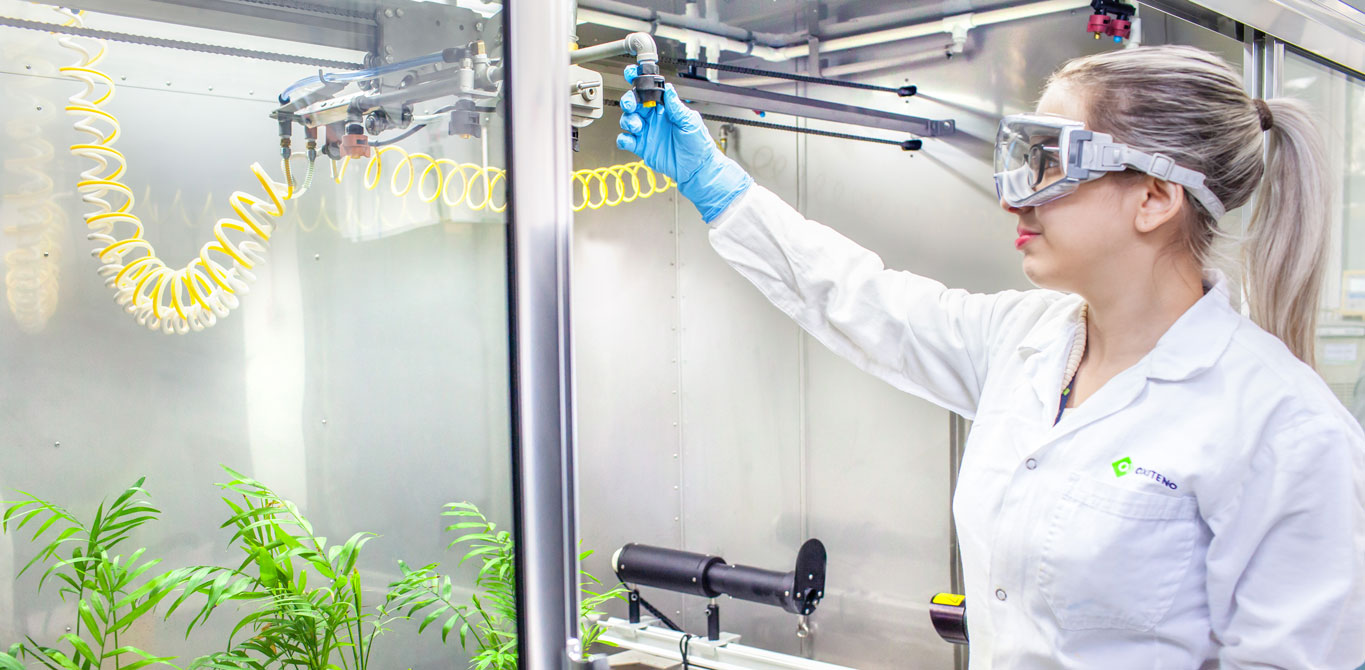
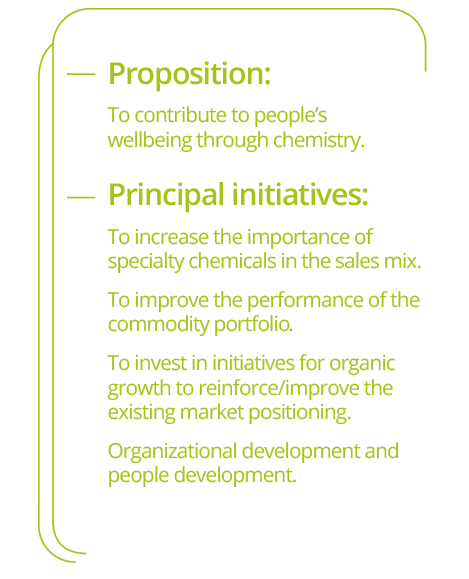
The Company develops and provides solutions for the Agro-chemicals, Personal Care, Domestic and Institutional Cleaning (HPC), Oil and Gas and Coatings segments. With 12 industrial units, three Research and Development centers (in Brazil, United States and Mexico) and nine commercial offices (Belgium, China, Brazil, Uruguay, Argentina, Colombia, Venezuela, Mexico and the United States) where it has a portfolio of more than 500 chemical formulations. The business has the advantages of both geographical coverage and also its capacity of response to the demands of the clients with which it works closely in the joint creation of products, always with a focus on providing eco-efficient solutions.

One of the year’s highlights was the Star project for the expansion of the ethoxylation plant in Pasadena, Texas (USA), with a productive capacity of 120 thousand tons annually. At the new unit where operations have already begun, approximately US$190 million was invested over the course of six years. Creating more than 120 jobs, the plant is situated close to the Gulf of Mexico, a strategic location with easy access to the principal raw materials, logistical resources and essential specialized labor.
Investments were also made in the inauguration of a research and development center on the University of Southern Mississippi (USA) campus and the constitution of a commercial structure. Prior to the start of operations at the new Pasadena unit, the Company undertook an intense process of pre-marketing for developing a close relationship with the clients and to establish a bond of trust with the players in the United States. In this context, about 30 thousand tons of product was exported to the United States from Oxiteno’s plants in Camaçari (Brazil), Mauá (Brazil), Santa Rita (Venezuela), Tremembé (Brazil), Suzano (Brazil), Guadalajara (Mexico) and Coatzacoalcos (Mexico). This operation also contributed to a better understanding of the North American market and the relationship of some of the technical aspects required for certain items in Oxiteno’s portfolio.
In 2018, the business reported sales volume down by 3% or a decline of 22 thousand tons compared with the preceding year due principally to the reduction in sales of specialty chemicals in the domestic market. By contrast, commodity volume sales advanced by 12% compared with 2017, reflecting the greater demand for this kind of product. Total exports fell 4% in 2018 due to reduced demand from Mercosur countries, more especially Argentina. Meanwhile volume to the domestic market was down by 2% year-over-year.

Oxiteno’s net revenues rose 20% during the year, largely the result of the depreciation of the Real against the US Dollar and an 8% higher year-over-year average price (in US Dollars) in parallel with the increase in raw material costs. These factors compensated for the lower sales volume and the greater share of commodities in the overall sales mix. Cost of goods sold rose by 17% in 2018, reflecting an increase in the costs of raw materials – principally ethylene –, the devaluation of the local currency and startup costs at the new unit in the United States. These factors also explain an increase of 10% in general, administrative and sales expenses – plus greater payroll overheads.

During the year, other non-recurring events had an impact on results, notably the truckers’ strike which affected operational activities at four plants (Mauá – SP, Suzano – SP, Tremembé – SP and Triunfo – RS), preventing the shipping of products – and translating into losses of about R$13 million .
EBITDA closed the year at R$625 million, an increase of 111% over 2017, despite a reduction in sales volume. The improved EBITDA largely reflects the constitution of tax credits, having a positive net effect of R$186 million on EBITDA, and to the depreciation of R$0.46/US$ in the average rate of the Real against the US Dollar. Excluding tax credits which are non-recurring, EBITDA would have been R$439 million, a 48% increase in relation to 2017, due to a higher unit value in US Dollars and a devalued exchange rate.

In 2018, the business employed investments totaling R$467 million allocated mainly to the new manufacturing unit in the United States and to the expansion and maintenance of existing productive units.
At the end of the fiscal year, Oxiteno had a payroll of 1,943, 2% more than in 2017. Particularly notable in the Company is the strong presence of women in the most senior positions – 27% of them with women in command – as well as a substantial number in the inhouse recruitment program. Of the 40 new positions, eight of them (equivalent to 19%) were filled through this program.
During the year, the Company concluded the Evolution project for restructuring the business’s operational model. In the light of the changes introduced, Oxiteno will concentrate its efforts on different segments and markets, adding value to its relationship with clients and intensifying innovation. The new operational model gives the business better conditions for domestic and international growth with a flatter management hierarchy. The changes have resulted in the creation of new areas and in the selection process to occupy the positions created, the success of inhouse training became apparent in the quality of candidate: 29% of the positions being filled by personnel already in the Company’s employ.



| Job category | Men | Women |
|---|---|---|
| Senior Management | 1 | 0 |
| Management | 3 | 3 |
| Managerial Staff | 125 | 49 |
| Coordination/Supervision/Consultant | 133 | 28 |
| Administrative | 191 | 226 |
| Operational | 974 | 210 |
| Interns | 35 | 62 |
| Young Apprentices | 16 | 17 |
| Total | 1,478 | 595 |
New hires and turnover – 2018 | |
|---|---|
Hired | 234 |
Terminated | 231 |
Turnover rate (%) | 18 |

Oxiteno provided 39,414 hours of training to its employees – equivalent to 3,368 courses during the year – as part of a skills development process. The majority of the courses are made available through the DNA Portal, an e-learning platform used for executing approximately 50% of the initiatives related to the career development plans prepared for each employee and aligned to the result of the performance evaluation process.
Oxiteno endeavors to offer differentiated benefits for motivating and retaining talent. Among these are incentives for language and post-graduate and/or university extension courses in Brazil and abroad. Those interested in pursuing additional educational qualifications abroad can request unremunerated leave of absence. During the year, the Company offered benefits of this nature to 74 individuals. The Company also held a further trainee and Interns programs to attract talent. A total of 106 and seven young people respectively, were recruited to pursue their career paths under these programs.
Significant investments were also made to revise and improve internal communication. Oxiteno was the first company in the chemical sector in Brazil to adopt the Workplace, a collaborative platform on Facebook, specific to the corporate world. This new communication channel has the objective of supporting the cultural transformation that has taken place in the Company over the past few years. Major benefits of such a corporate network are the integration of all employees worldwide, the speed with which information is communicated and the employees themselves acting as protagonists in the role of spokespeople for the thematic strategies and internal projects. In addition to maximizing the sense of belonging and pride of all employees, this contributes significantly to improved management of knowledge, an exchange of best practices and problem solving. At the end of its first month of implementation, 90% of the employees were already incorporated into the platform, considered a benchmark when compared to others in the market.
Another new feature was the What's Next Forum, an event which is transmitted live via webcast, providing transparency to the results, strategy and challenges of the business for all employees worldwide. With language couched in a journalistic style, presentations are made by members of Oxiteno’s management after the close of each quarter. At the end, there is a questions and answers session in real time. What's Next is transmitted in Portuguese with simultaneous translation into English and Spanish, the two events in 2018 having a total audience of about a thousand professionals.
Always presented as a key value, the management of occupational safety is strengthened annually through initiatives for sustaining a preventive culture of safety at the industrial units, offices and research center, always preserving the wellbeing and health of the employees. During 2018, the principal initiatives in occupational safety were directed towards reinforcing the main tools for identification and evaluation of risk as well as behavioral safety aspects.
At Oxiteno, the preparation of the risk analysis of tasks at the Company is mandatory whether routine or otherwise. When a risk is classified as red, the execution of these tasks is not permitted. The risk analysis methodology used is conducted according to a hierarchy of controls in determining the safeguards with respect to the danger and risk in question.
Again, in the second half of 2018, the Company began the implementation of the Corporate Behavioral Safety Program. This involves an initial phase of diagnosis to identify the stage of culture of each unit and establish plans and actions for reinforcing the aspects which will elevate the level of the culture to increasingly more solid levels. Additionally, Oxiteno has invested in legal and normative training to stimulate constant awareness among employees of occupational health and safety issues.


One of Oxiteno’s principal strategic objectives is to be outstanding in innovation. It is in this context that the Company invests in research and development, increasingly intensifying the work of co-creation and customized solutions. The Company’s portfolio comprises more than 500 chemical formulations and in 2018, it applied to register 12 patents. In addition, the application for registration of three patents was approved.
Again during the year, in the city of Mauá, in the Greater São Paulo area, Oxiteno unveiled its agro-chemicals laboratory at the Research and Development Center (R&D). With this, it becomes the only laboratory in Brazil to have the equipment and infrastructure for the precise simulation of the application and efficacy in the field of technologies developed internally. The new structure includes plant growth chambers using the most modern technology. Crop spraying in the field can be simulated allowing tests to be made internally of the biological effectiveness of herbicides, together with general studies on the application of any inert liquid mixture. The lazer equipment installed to operate in conjunction with the spray chamber enables the distribution profile of the dispersed droplets to be measured and in this way to calculate the drift potential when the herbicide is applied.
With the unveiling of the space, Oxiteno has been inviting clients and partners to meetings on so-called Innovation Days to showcase the new laboratory and to discuss innovations and co-creation projects, thus providing the Company with the best possible conditions for understanding and serving the needs and meeting the challenges of both clients and farmers.
In the area of IT developments, the Company has implemented a new ERP system, already in operation in Mexico and the United States.
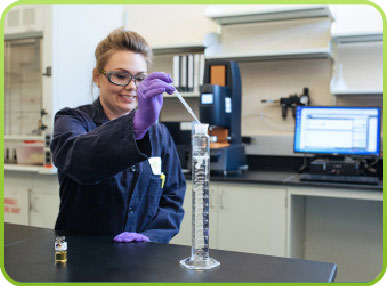
Oxiteno’s partnership with its clients is designed to develop products with differentiated qualities and which meet the specifications required by the partners. For example, in 2018 with Novozymes – a world leader in biological solutions –, the Company launched OXIZYMES, a unique and exclusive combination of surfactants and enzymes for ensuring high performance cleaning and premium results in removing stains from fabrics. This new product has already been patented and has performed outstandingly in terms of efficiency and reduction in costs along the production chain, permitting the use of less active ingredients in the formulation. In addition, the product contains raw materials of renewable origin.
Another new product in the Personal Care segment launched by Oxiteno in the market was OXISMOOTH®, a line consisting of three emollient esters used in skin care and hair products as well as a sun block. This innovation meets important qualities demanded by the market such as a dry touch, suaveness, hydration, quick absorption and an agreeable feel. In addition, it is biodegradable, non-phototoxic, non-cytotoxic with production based on renewable raw material sources. The line was awarded Ecocert COSMetic Organic Standard (Cosmos) certification testifying the product as a natural and organic cosmetic.
The Company’s portfolio in the Oil and Gas segment has also grown. One of the results of the research and development for the sector during the year was ULTROIL® WM 1001, the only high performance degreaser manufactured in Brazil and thus reducing the costs of imports to clients. Used at the drilling stage, the product facilitates cleaning during the operation by dissolving and dispersing oil- or synthetics-based fluid residues thus leaving the well, tubing and metallic surfaces free of deposits, even when small amounts are applied, and under conditions of high salinity. The product is also biodegradable, non-inflammable and free of aromatics.
In the Coatings segment, the Company launched ULTRASOLVE®M 2200, n-propyl acetate, an active solvent with excellent solubility and stability for polymeric paint systems, providing high performance in formulations for printing inks and industrial paints. The product is complementary to the ULTRASOLVE® H line, a new generation of molecules derived from propanol, being Health, Safety and Environmentally (HSE) friendly, enabling the production of low toxic paints and coatings and low impact in classification and labeling according to the Globally Harmonized System (GHS), as well as offering top performance and excellent competitivity.
Oxiteno’s concern in developing products which promote people’s wellbeing through chemistry is revealed in the business’s various initiatives. One of these is the use of the Life Cycle Evaluation for evaluating the environmental performance of the Company’s products. The methodology, in accordance with ISO 14040 and ISO 14044 norms, allows the environmental impacts to be quantified at all stages of the plant’s existence, identifying which ones are the most critical and relevant. Based on the diagnosis, alterations both in the processes as well as through the substitution of raw materials are tested. In 2018, three new life cycle studies were begun, two in the Personal Care, Domestic and Institutional Cleaning (HPC) segment and one for the Oil and Gas segment. With these, life cycle studies total 16 together with a further 60 chemical compositions analyzed.
In the case of environmental management, the principal aspects and impacts are related to the consumption of natural resources including water and energy, and to atmospheric emissions, solid waste and liquid effluent. Environmental aspects are identified and the impacts classified. Based on the classification, measures for prevention, controlling and mitigating the environmental impacts are established. Oxiteno seeks not only to meet the legal requirements but also to be a reference in environmental management. Currently, all its environmental indicators show a performance superior to the indicators for the Brazilian chemicals industry as a whole (ABIQUIM), with the exception of the reuse of water for which there is an improved goal.
Oxiteno has been certified under ISO 14001 since 2002 for the Brazilian units, also meeting the code and requirements of the Brazilian Chemical Industry Association’s (ABIQUIM) Responsible Care initiative at all locations, with the exception of the Pasadena plant where the process is to begin in 2019. In 2018, the units in Brazil and Mexico obtained certification under the new version of ISO 14001:2015 rule. Oxiteno’s environmental management has also been recognized by various initiatives such as the Exame Guide to Sustainability, the Carbon Disclosure Project- CDP in hydraulic and climate change management and in client evaluations where it is top ranked in the others category of the Ecovadis evaluation platform. In addition, Oxiteno’s three units in Camaçari have received the Camaçari Pole Award in SSMA, Excellence standard, where environmental management was the aspect which was best evaluated.
Oxiteno operates a Greenhouse Gas Monitoring and Reduction Program where emissions are monitored monthly through an inventory which is audited annually by a third party according to the ISO 14064-1 rule. The Program was implemented in 2009, when 19 opportunities for a reduction were identified, of which eight have already been implemented and two are work in progress, one of them to go into operation in the first quarter of 2019 at the Tremembé unit with the replacement of fuel oil by natural gas.
The principal sources of emissions come from steam generation, the production of ethylene oxide and consumption of electricity. For steam generation, Oxiteno continues to invest in the adoption of cleaner fuels as well as the optimization of the steam network, state of the art technology with the adoption of advanced control of processes and the harnessing of residual gases from neighboring companies.
To reduce emissions in the manufacture of ethylene oxide, the gases produced are sold and used as raw materials in other productive processes. The emissions which are avoided by the harnessing of residual gases represent a reduction/compensation of 25.5% of Oxiteno’s total emissions, thus complying with the goals set for 2020 to reduce emissions by 25% compared with the baseline year of 2008 (in 2008, the index was 0.47 ton CO2e/ t declining in 2018 to 0.35 t CO2e/ t produced) – emissions avoided since the beginning of the operation until 2019 being equivalent to 892,468 tons of CO2e.
GHG emissions (tCO2e)* | 2016 | 2017 | 2018 |
Direct emissions (Scope 1) | 441,852.0 | 498,059.4 | 405,668.5 |
Indirect emissions (Scope 2) | 178,415.7 | 183,364.1 | 188,164.4 |
Total emissions | 620,267.7 | 681,423.4 | 593,832.9 |
Total per ton of product sold | 0.5 | 0.5 | 0.5 |
Energy consumption for the industrial and administrative processes is monitored monthly with a critical analysis of unit performance. The improvement of energy performance is the focus of constant investment with optimization of the steam network, boilers, ovens and turbines.
Oxiteno places great weight on the use of clean, viable energy for the business. Energy from the burning of residual gases from productive processes previously burnt without being fully harnessed is consumed; steam is harnessed for generating electric energy; and natural gas, residual gases, hydrogen and alcohols are adopted as fuels. Digital technology was installed at Camaçari in the form of the Advanced Control Process which reduced the consumption of steam by 6.7 ton/h while fuel oil will be replaced by natural gas at the Tremembé unit in the first quarter of 2019.

Oxiteno develops a water resources balance at all its industrial units and evaluates the risks and opportunities for reduction, harnessing and direct reuse. The Company has a goal of expanding the use of water for reuse by 20% of total consumption as against the current 15%, from effluent and rainwater harvesting. Considering total consumption, 98% of water that is consumed returns to the environment as evaporation or treated effluent. The remaining 2% is incorporated into the products.


Oxiteno adopts a policy of management which prioritizes the non-generation of waste or its reutilization and in the case of disposal, recycling followed by use for energy (coprocessing), incineration and, as a last resort, dispatch to authorized industrial landfills.
Waste which is generated is separated for bundling and identification with characterization and classification: hazardous and non-hazardous waste is temporarily stored in appropriate locations. Service providers are qualified and with the approval of the responsible authority, waste processed for final disposal.
In accordance with guidelines for avoiding the disposal of industrial waste in landfills – an alternative restricted to countries in which there are no technological alternatives available –, in Brazil, 98% of the waste is sent for recycling and generating energy, while 2% is incinerated.


In the case of hazardous waste, disposal is through the use of practices which ensure the total neutralization of the material.
Waste dispatched to the industrial landfill – from the unit in Uruguay – is obsolete – intrinsic to the process –, depleted solids and absorbent materials. Options for disposal of waste in the country are limited, the industrial landfill beginning operations a few years ago, and the harnessing of industrial waste, such as that produced by Oxiteno, to generate energy was only developed after the acquisition of the unit by the Company.


Oxiteno fosters and incentivizes community outreach projects which contribute to local development. In 2018, the Company began its participation in the Baú das Artes project in Camaçari (BA). The initiative sponsors the distribution of hampers containing kits of infant books, educational games, toys, fancy dress and musical instruments, a collection which stimulates the students’ dedication, their sensibility and their bodies and rationale in the building of knowledge of various kinds. Training workshops for teachers, combined with the distribution of the Manual of the Educator and Competencies and Skills Matrix, help educators from selected schools to make the best use of the hamper’s contents. The materials can be used for gamification and educative methodologies for teaching transversal themes contained in the National Curricular Parameters, namely the environment, sexuality, ethics, work and consumption, health and cultural plurality. The Baú das Artes proposes eight activities per thematic axis, half of them for children from 5 to 7 and the other half for apprentices from 8 to 10. During the year, eight schools participated in the project, 28 educators were trained and 1,740 children benefited.
The Company also sponsors the social outreach Integrate Art and Life (Integrar Arte e Vida) project in Mauá (SP) at the Cora Coralina Municipal School in Mauá in partnership with the Municipal Education Department. This monthly initiative involved approximately 200 students from the institution, stimulating them to stay on at school and finish their educational courses. The initiative also contemplates cultural and sporting workshops involving dancing, indoor soccer and judo, during the period in the day when the children are not officially required to be in school. The core activities of the Mauá Integrate Art and Life project is 100% sponsored by Oxiteno, maintained through tax breaks under sports incentive laws and managed by the National Sports Association (ANE) and the National Association for the Development of Education and Sport (Andee).
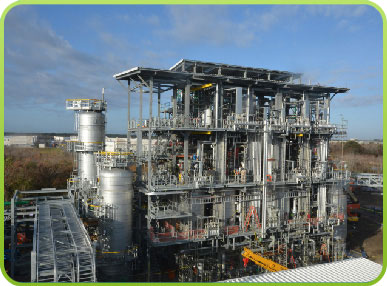
Similarly in the state of São Paulo, in the city of Tremembé, the Company supported the Young Apprentice ( Jovem Aprendiz ) project at the Manuel Cabral State School. Volunteer employees visited the institution to provide careers guidance for second and third grade students. By recounting their work experience, the employees helped students to choose a profession and/or a higher education course, encouraging them to seek a personal and professional qualification. In all, a total of 21 employees took part in this initiative, discussing ten different themes during weekly meetings. A total of 175 students enjoyed the benefits of the Young Apprentice project.
Another highlight during the year was Oxiteno’s participation with Abiquim in preparing the Contribution Letter to the United Nations’ Sustainable Development Goals (SDG). In the letter, Abiquim’s members formalized the engagement of the Consultative Community Councils (CCCs) with the UNO’s global agenda and with its dissemination and implementation. Oxiteno’s CCC in Tremembé has contributed directly over the years to goals 3 and 4 (Health and Wellbeing and Quality Education) through initiatives such as visits and training at the plant with participation of leaders and community representatives, Junior Projects Agents against Dengue Fever and environmental workshops with schools in the region. The CCCs represent a communication and relationship channel between the companies and local residents and include voluntary representatives from the district, traders, educational institutions, NGOs, opinion formers, informal community leaders, technical and government bodies, among others. Oxiteno has representatives on the councils of all its industrial units in Brazil.
Exame’s Biggest and Best (Maiores e Melhores da Exame): Oxiteno Nordeste was ranked as the best company in the Chemical and Petrochemical sector in the edition of Exame magazine which recognized companies’ performance in 2017.
Valor Brazil Innovation Award (Prêmio Valor Inovação Brasil): for the fourth consecutive occasion, Oxiteno was recognized as among the 150 most innovative companies in the country. The Company was 31st in the general ranking and among the top five in the Oil and Petrochemicals, Packaging, Pulp and Paper category. This recognition was awarded by Valor Econômico newspaper.
ICIS Surfactants “Newcomer” Award 2018: the Company received this distinction for the new plant project in the United States from the Independent Chemical Information Service (ICIS), one of the most prestigious sources of data on the chemical and petrochemical market anywhere in the world.
Kurt Politzer Award for Technology and Innovation: Oxiteno was awarded for the sixth time in the company category. The winning project had the theme “New sensorial qualities for skin care using multifunctional green emollients”.
Brazilian Women in Chemistry and Related Sciences 2018 Award: Cristiane Canto, R&D Manager for Personal Care, Domestic and Institutional Care at Oxiteno was awarded in the Leadership in Industry category. This award is sponsored by the Chemical Abstracts Service (CAS), a division of the American Chemistry Society (ACS) and by Chemical & Engineering News (C&EN).
Shell Top Performance EO Catalyst Award: Shell awarded Oxiteno with the distinction for being the best company in the use of catalyzers.
Occupational Health, Safety and Environment Pole Award (HSE Pole): created and developed by the Camaçari Industrial Development Committee (Cofic), it recognizes and stimulates practices which increasingly foster the working and environmental quality in the industries of the Camaçari Industrial Pole. For the second time, Oxiteno was awarded in the Gold Excellence category, the event’s most important.
Paint & Pintura magazine: in the event organized by one of the paint sector’s leading publications, Oxiteno was rated the best supplier in the Oxygenated Solvents for the seventh consecutive time. It was a runner up in Coalescents.
Tintas & Vernizes magazine: Oxiteno was recognized for the third consecutive time in the Oxygenated Solvents category in the magazine’s quality survey.
ABFLEXO Award: the Brazilian Association of Flexographic Techniques awarded Oxiteno the Prof. Sérgio Vaya Flexo Quality Prize, the most important award in the Brazilian flexographic industry in the Solvents category.
Caio Award: for the third consecutive year, Oxiteno received the Caio award which recognizes effective marketing tools such as endomarketing actions, events and product launches.
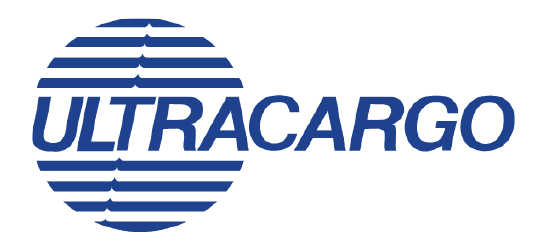

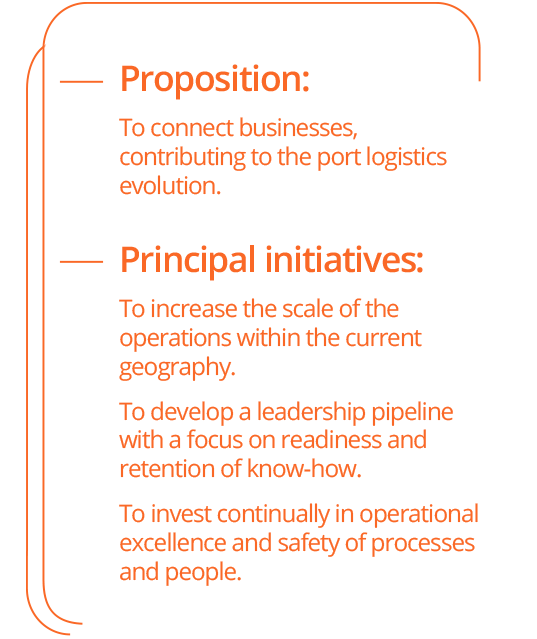
Ultracargo’s six terminals are located strategically in the principal ports of Brazil in the states of Maranhão, Pernambuco, Bahia, Rio de Janeiro, São Paulo and Paraná. In 2018, the Company reported movement of 6 million tons through its terminals, realizing more than 152 thousand operations. Average storage increased 5% compared with 2017, this result driven particularly by greater movement of fuels and ethanol in Santos (SP).
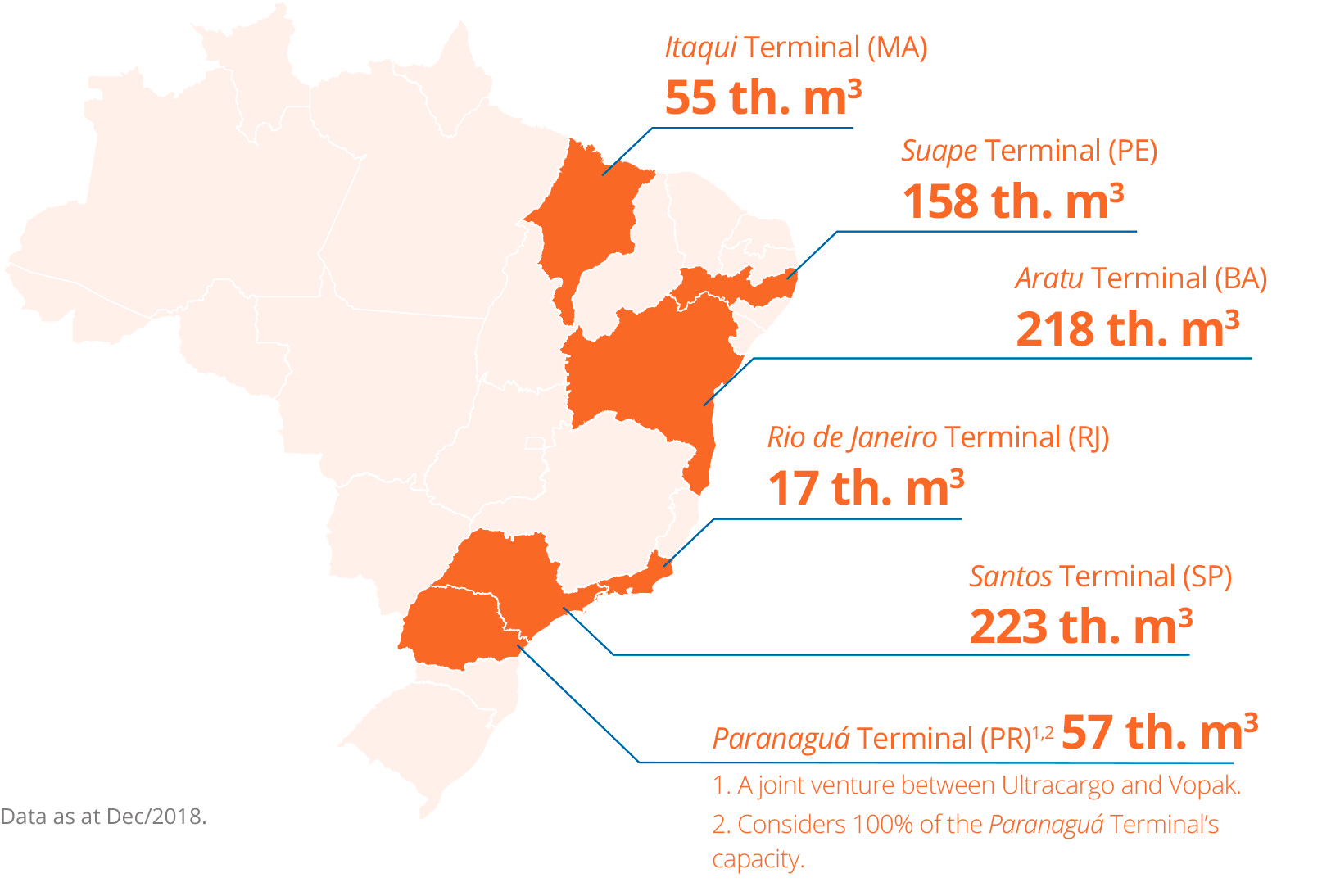

Sectorial forecasts point to the need for an expansion in installed static capacity in Brazil, today totaling 3 million cubic meters. Ultra is constantly monitoring the opportunities for both organic and inorganic growth. Currently, the business already has expansion projects at Itaqui (MA) and Santos (SP) terminals.
The first phase in the expansion of Itaqui should be concluded by August 2019, representing an increase of 30 thousand m³ of storage capacity. By 2020, when phases I and II are concluded, the unit will have a storage capacity of 103 thousand m³, nearly double the current capacity (55.3 thousand m³). The number of loading bays for rail cars on the branch line in turn will increase from 12 to 36.
The recuperation process of the area affected by the 2015 incident in Santos (SP) continues apace. It is estimated that in 2019, the unit will have already added 84 thousand m³ to storage capacity. With the completion of the work at the Itaqui and Santos terminals, Ultracargo will have expanded its storage capacity by 16% (or 814 thousand m³ against 700 mil m³ in 2018).

Ultracargo’s tankage capacity is currently fully contracted. Since 2016, average utilization of installed capacity has exceeded 100% at the Aratu (BA), Itaqui (MA), Suape (PE) Rio de Janeiro (RJ) terminals, reflecting the close relationship with the clients and awareness of their demands as well as the Company’s expertise in rapidly adjusting the tanks to receive different types of product.

The diversification of the client portfolio – only 14% of the contracts relate to agreements with companies in the Ultra group – and the fact that 65% of the agreements date back more than three years is also indicative of the sustainability of the business.
In 2018, Ultracargo reported growth of 13% in net revenue (R$494 million in 2018) due to the increase in average storage (this due to the partial recovery in activities at the Santos terminal) as well as increases in productivity and contractual readjustments.

The cost of services rendered posted a similar growth (of 12%) due to higher expenditures with leasing, payroll, third party services and tank maintenance services at the terminals as well as local property taxes (IPTU). In turn, general, administrative and selling expenses rose 4% in the period, reflecting higher expenses with payroll and variable remuneration – in line with results – and greater outlays with strategic consultancies and operational safety. However this was attenuated by the reimbursement of a port tax incorrectly charged in previous years.
EBITDA increased by 44% (to R$178 million) due to greater handling activity in the terminals and readjustments to contracts. The Company continued to suffer the residual effects of the fire in April 2015 in the Santos terminal with a negative impact of R$39 million in 2017.

Ultracargo invested R$162 million in 2018, allocated principally to expanding the Itaqui and Santos terminals as well as the modernization and maintenance of existing infrastructure.
One of the key events of the year was the conclusion of Ultracargo’s strategic plan, encompassing the execution of more than 30 projects, aligned to five guidelines: Geography, Operations, Clients, Innovation and People.
To increase the scale in the ports where Ultracargo is currently located and to operate in new strategically important ports in Brazil.
In relation to operations at the terminals, Ultracargo’s objective is to have its reliability recognized by the market, to maintain installations suitable for meeting the requirements and levels of service demanded by the different segments and to reach standards of excellence thereby gaining in productivity, agility and flexibility.
From the point of view of corporate processes (which support Ultracargo’s centralized processes), the aim is to ensure that these are simple and agile as well as ascertaining that operating and information systems match the challenges of the businesses.
As a basis for all these challenges, the guideline also reinforces the importance of disseminating the culture of compliance and by 2020, consolidating the independence stage of the safety culture whereby each employee understands his role in relation to collective safety.
To be recognized in the market for its differentiated relationship, reinforcing the communication of its competitive differentials to the market, strengthening its image and providing quality information in good time to its clients.
To use the technical knowledge built up over time in order to establish operational differentiation and excellence.
To achieve a level of engagement and motivation above the market average, to disseminate a culture of high performance, autonomy and meritocracy and establish channels and rituals of communication capable of connecting and mobilizing employees.
Among the challenges of this guideline is the formation of leaders with technical experience in order to conduct the operations at the terminals as well as to identify and develop successors for key positions.
At the end of 2018, Ultracargo had a headcount of 711, 1% less than 2017. The variation reflects the end of operations at the Braskem terminal in Aratu (BA), partially attenuated by the increase in the workforce in Santos, Suape and at head office. One of the constant concerns of the business is to ensure employees are trained and aligned to corporate propositions and values.



| Job category | Men | Women |
|---|---|---|
| Senior Management | 1 | 0 |
| Management | 1 | 1 |
| Managerial Staff | 23 | 12 |
| Coordination/Supervision/Consultant | 47 | 18 |
| Administrative | 68 | 77 |
| Operacional | 446 | 18 |
| Interns | 2 | 0 |
| Young apprentices | 15 | 3 |
| Total | 603 | 129 |
New hires and turnover – 2018 | |
|---|---|
Hires | 90 |
Terminations | 95 |
Rate of turnover (%) | 13 |

The business has dedicated considerable investments in communication with the employees and in their training to disseminate the Ultracargo Strategy to ensure that its aspirations are both clear and tangible.
Among the measures adopted was the formation of 57 professionals as Ambassadors, responsible for divulging the strategic plan to all the teams at Ultracargo. The meetings held by the ambassadors take place every two weeks at the terminals and at head office and last for 15 minutes. At each meeting, a key message is transmitted on the guidelines of the Ultracargo Strategy. The Ambassadors go to the meetings armed with instructional material especially prepared for the activity. It is expected that this work of multiplication will be completed by April 2019.
Throughout the year, the Company also ran a far-reaching campaign for communicating Our Way of Being using for example, folders, videos, animations, among others. The discussion and decisions on the Company’s principles and values came to an end in 2017 and since then these initiatives are being put into practice so that they can be assimilated and can guide actions and behavior in all relationships with teams, clients, suppliers and partners.
Among the values of Our Way of Being is: “we put safety in first place”. In 2018, Ultracargo DNA was launched, a program representing a development on the theme and one which has been to the fore since 2015 through the Safety Attitude project – with respect to processes and procedures. The aim is to consolidate the culture of safety first and strengthen the operational discipline among all the employees. With the coordination of the Human Resources and Occupational Health, Safety, Environment and Quality (HSEQ) areas in partnership with Dupont, Ultracargo DNA prepares the Company to reach the Interdependent stage on the Bradley curve over the next few years. This is the stage when employees feel empowered as owners of their own safety and take responsibility both for themselves and in relation to others. The program focuses on behavioral aspects and is conducted in tandem with a broad-based program of training. A component of this program is the Perception of Risks workshop where there was a 79% participation throughout the period – by mid-2019, the aim is to reach 100% – and which is to become a standard fixture in the training schedule at the Company. This training stimulates reflections on the importance of safety in various aspects and moments of life as well as discussions on concepts which can be used in the day-to-day routine.
Also launched during the course of the year was the Operator Training Program, marking a new phase in technical training reformulated for both new and also existing operators undergoing retraining. The objective here is to unify learning and guarantee greater quality and safety to the operation. In 2018, Ultracargo implemented the highway operation model with a revised Operator Manual and the use of training videos. The dissemination of knowledge is conducted by Ultracargo’s employees, denominated Multipliers and Operators of Reference. The program has a duration of approximately 160 hours.
During the year, the Company conducted various emergency simulations at the Company’s terminals including the administrative areas. The members of the inhouse security teams underwent regular training in various safety-related aspects.


The safety initiatives introduced by the Company have been instrumental in ensuring there were zero accidents with time off work in the period.
Ultracargo also seeks to reinforce a culture of meritocracy, the People Committee established evaluating and recognizing the work of employees. Performance evaluations are applied annually for leadership personnel (supervisory and above). Part of the evaluation process relates to the Company’s results and individual goals (covering 14% of the workforce). In the case of a more significant segment of employees (24%), skills and potential to grow in the Company are analyzed, involving not only the leadership but also employees in administrative functions at head office. In this case, leadership committees are organized, subsequently providing feedback and for the preparation of Individual Development Plans.
The business also conducts an Organizational Climate Survey. The last survey in November 2018, pointed to a favorability index of 73%, two points above the showing for the general market.
The Communication Channels Guide was launched during the period for presenting the vehicles of communication dedicated to both inhouse and external stakeholders and to provide guidance to employees on how to raise and submit issues and to prepare announcements.
The Company holds visiting days so that the employees’ families can have direct contact with the activities of the terminals, the purpose being to see the installations, the safety measures and routine tasks. While on the visits, participants receive the same personal protection equipment as that used by employees as well as information on Ultracargo and its production. There were approximately 170 visitors to the terminals during the year.
Ultracargo has a HSEQ Management Program for Contracted Supplier Companies establishing a series of guidelines for choice of suppliers, always in line with the Company’s Sustainable Development Policy. From the moment a supplier is selected, the Company monitors compliance with the minimum requirements demanded through the medium of questionnaires and analysis of pertinent documents. For those contracted companies with more than nine employees and where the partnership with Ultracargo is over a year, the Company has constituted the Loss Prevention Program in HSE with measurement using the Performance in Occupational Health, Safety and Environment Performance Index (HSEPI). Preventive and reactive indicators with respect to these themes are established and evaluated for improving the performance of suppliers’ employees.
Suppliers are subject to an annual HSE Legal Requirements Audit by the HSEQ area in accordance with the Protocol developed by the area itself. In 2018, 68 companies were audited.
The relationship with the clients has always been a competitive differential for Ultracargo, to such a degree that the Company is now able to prepare customized contracts according to the profile of each customer. In 2018, UIltracargo announced the splitting of the Bulk Liquid Business division into two: Commercial and Operations. The aim is to provide more conditions for the Commercial area to concentrate its efforts on identifying market opportunities, developing new businesses and enhancing relationships with the client while Operations is to focus on ramping up operational excellence.
The Company’s objective is to further integrate clients into the activities of the business. So that they can become better acquainted with the operations, Ultracargo extends invitations for participation in the Knowing Ultracargo Better program with visits to the terminals. In the past two years, 100 visits have been organized with 350 participants. In addition to giving partners direct exposure to the structure of the terminals, the rationale for this initiative is to emphasize Ultracargo’s competitive differentials such as reliability, agility, safety and client guidance.
Ultracargo runs annual satisfaction surveys with captive clients which have operations in the terminals during the period. The surveys are conducted preferentially on-site and once scores are consolidated, a presentation is made to the managers and action plans devised for items where the score is less than 8. In the 2018 survey (baseline year 2017), the evaluations of the terminals were as follows: Aratu, 9.0; Suape, 9.6; Santos and Rio de Janeiro, 8.5; and Itaqui, 9.5.
Ultracargo prioritizes the development of innovative and digital solutions with a focus on the client and operational excellence. It invests in the improvement of its market intelligence through the activities of a planning team set up less than two years ago. The team seeks information on all sectors/types of product stored by the Company for creating internal know-how with respect to the best time to approach clients and to propose solutions for meeting their requirements. Ultracargo is converting its data area into a sector focused directly on business intelligence for maximizing the use of the database and in this way enhance still more the support for the Commercial Division and supply the leadership with information needed for taking decisions and making forecasts.
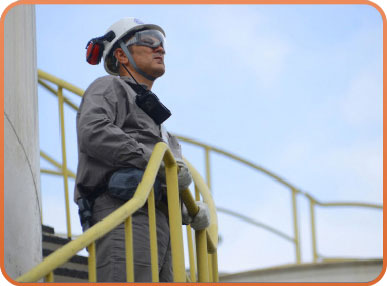
In 2018, the Company also conducted work on the innovation theme in partnership with an outside consultancy based on two pillars. The first is dedicated to identifying all information and technological solutions available in the market and selecting those with the greatest applicability to the businesses. The second pillar involves listing the clients and their principal needs; and at the same time, identifying the resources to attend to these needs in the best way possible. In the light of this work, the Company has chosen three projects which will begin in 2019 using agile scrum methodology.
One of the technological innovations adopted by Ultracargo in 2018 was the use of drones for inspections of storage tanks. To employ this resource without incurring safety risks, the Company has developed a special protection system for the equipment, eliminating the chances of collisions or loss of altitude which could prove a fire hazard. In addition to mitigating the risks of high level working by employees, this innovation reduces inspection costs by 93% and time taken to complete the inspections from 20 to two days, not to mention the greater reliability of the data obtained.
Ultracargo supports various initiatives for encouraging citizenship and improving the quality of life of the communities surrounding its terminals as a means of actively participating in building a society with more opportunity for all.
For more than a year now, the Company has sponsored and played an active role in the Citizenship Pole, an event organized by the Camaçari Industrial Development Committee (Cofic) in partnership with Sesi – Social Service for Industry (Serviço Social da Indústria), Cidade do Saber and Camaçari city government. This outreach scheme gives access to a series of free services and activities for the community, more especially in the areas of healthcare, education, culture, sport and leisure.
The Company also supported the Community in Action initiative of the Santos-based newspaper, Tribuna, an award which publicizes and gives visibility to projects which contribute to improving the lives of thousands of people in the Baixada Santista region in four categories.
In the same city but this time in partnership with Comunitas, the Company promoted the Together for Sustainable Development (Juntas pelo Desenvolvimento Sustentado), which encompasses activities relating to healthcare and the financial management of the project, the purpose of which is to act jointly with government for involving and engaging civil society.
The Company also invests in ensuring that its operations cause the least possible impact on the environment. The terminals are ISO 14001 certified and there is a continual attempt to identify opportunities to improve activities in order to reduce emissions and consumption of natural resources. For example, in 2018 within the scope of the Optimization Plan and Rational Use of Water Program (Pura), a system for capture and reuse of pluvial waters – approved by the environment protection agency for the state of São Paulo (Cetesb) – was presented and installed at lot 3 of the Santos Terminal.
GHG emissions (tCO2e) | 2016 | 2017 | 2018 |
Direct emissions (Scope 1) | 5,184.0 | 6,276.0 | 6,437.9 |
Indirect emissions (Scope 2) | 2,282.0 | 1,087.0 | 1,106.2 |
Total emissions | 7,466.0 | 7,363.0 | 7,544.0 |
Total per ton of product sold | 0.00001 | 0.00030 | 0.00033 |







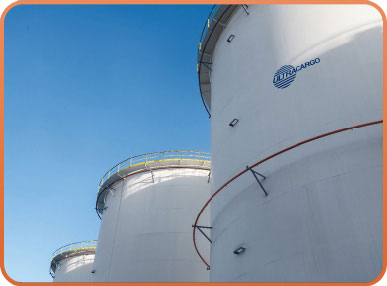

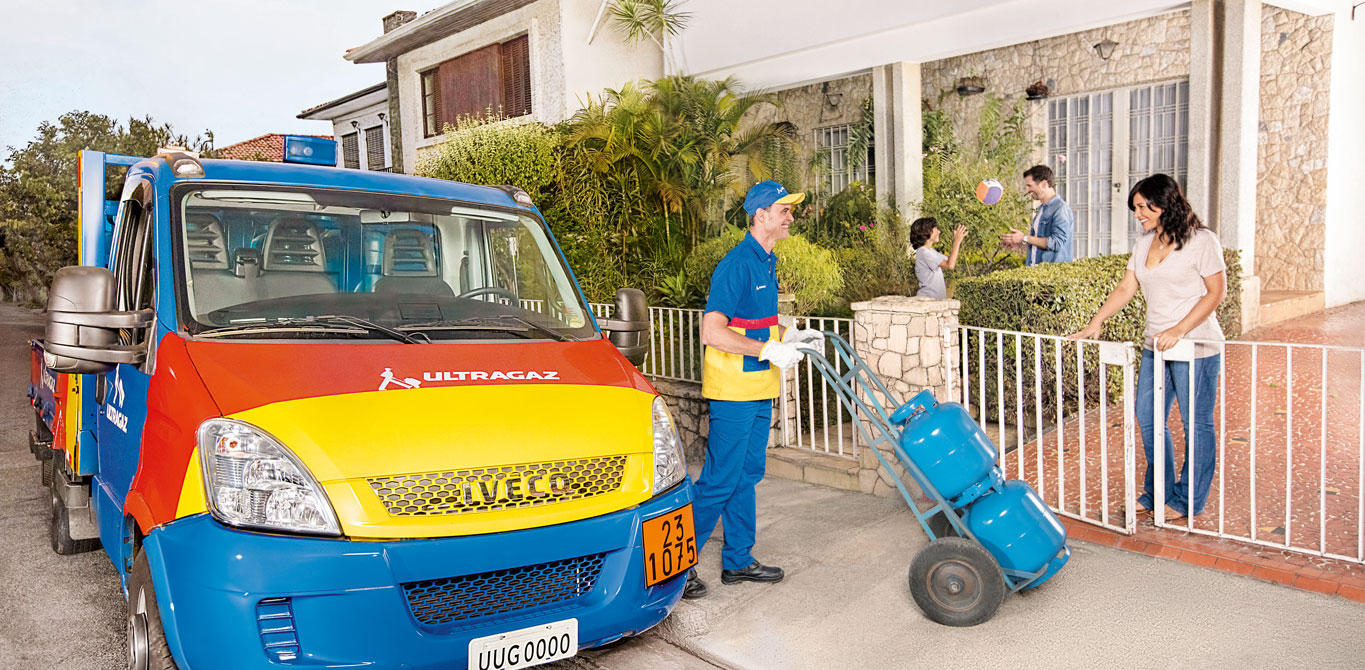
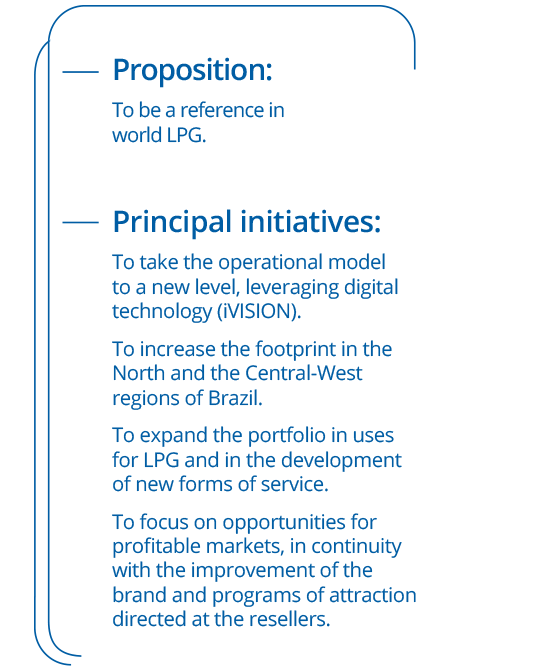
Ultragaz has operations in 22 states in Brazil and in the Federal District, supplying 1.7 million tons of gas to 11 million households and about 54 thousand corporate clients. It has 18 production bases for bottling LGP and 17 for storage and distribution in addition to more than 5.4 thousand resellers. Ultragaz is also a market leader in specialty gases.
In 2018, sales volume in the LPG segment was 1,198 thousand tons, a performance equivalent to that of the preceding year. Bulk sales volume was 527 thousand tons, a reduction of 3% on the same comparative basis. During the year, sales volume was 1,725 thousand tons, 1% less than 2017 and in line with the decline in the LPG market as whole in the period.

During the year, Ultragaz assumed the presidency of the World Liquefied Petroleum Gas Association (WLPGA), which has a membership of 200 companies in the LPG segment. The organization is now chaired by Pedro Jorge Filho, who has vacated his position as Chief Executive Officer at UItragaz. The occupancy of the WLPGA presidency confirms and reinforces the Company’s leadership in the world LPG scenario.
The year was also marked by the Brazilian Anti-Trust Authority’s (Cade) rejection of the proposed acquisition of Liquigás and as a consequence, the imposition of a R$286 million fine, this impacting financial performance.
Ultragaz reported total net revenues of R$7 billion in 2018, a growth of 16%, this reflecting in particular increased costs of both bottled and bulk LPG at the refineries as well as the Company's strategy of differentiation.

Cost of goods sold rose 21%, mainly due to higher LPG costs at the refineries while general, administrative and selling expenses fell 11% in 2018 with a reduction of marketing and freight overheads as well as lower expenses with strategic consultancies and reduced provisions for doubtful debts.
The Other Operating Results line closed 2018 with a net expense of R$278 million compared with a net expense of R$79 million in 2017, largely reflecting a fine of R$286 million due to Cade’s rejection of the Liquigás acquisition. Similarly, in 2017, the net expense of R$79 million is mainly due to the Cease and Desist Agreement (TCC) signed with Cade in the amount of R$84 million.
Year-end EBITDA was R$258 million, 41% less than 2017. Excluding the impacts of the above fine and the TCC payment, Ultragaz’s EBITDA would have grown 4%.

The Company invested R$225 million in 2018, largely allocated to the bulk segment and to the replacement and acquisition of gas bottles as well as investments in information technology.
Human resources are Ultragaz’s principal asset. The Company valorizes its employees through fringe benefits and working conditions for ensuring motivation and confidence and for maintaining a state of permanent personal and intellectual growth. In this context, Ultragaz invests in technologies and develops projects to ensure the alignment of the employees with the best and most up-to-date practices and solutions.



| Job category | Men | Women |
|---|---|---|
| Senior Management | 1 | 0 |
| Management | 6 | 1 |
| Managerial Staff | 104 | 10 |
| Coordination/Supervision/Consultants | 413 | 139 |
| Administration | 418 | 464 |
| Operational | 1,952 | 4 |
| Interns | 29 | 29 |
| Young apprentices | 0 | 1 |
| Total | 2,923 | 648 |
| New hires and turnover – 2018 | |
|---|---|
Hires | 357 |
Terminated | 473 |
Rate of turnover (%) | 11.8 |

The strategy for human capital focuses on the attraction, development and retention of differentiated professionals. The daily challenge is to conduct personnel management in such a way that competitiveness is guaranteed and compensation and benefits packages are harmonized.
Meritocracy is a key factor. Ultragaz has a Careers and Succession Committee for discussing employee profiles, aspirations, performance and potential. On this basis, the committee draws up a succession map, prioritizing the individual development plan in addition to possible movements, which may include salary adjustments, terminations, job rotation or promotions.
Ultragaz has hired 25 new talents for its Interns program, distributed in various regions of the country to support the succession process. Lasting for 12 months, the program provides the opportunity for professional development through the preparation of projects related to the business strategy as well as job rotation experience and technical and behavioral training. The retention rate in excess of 70% is a highlight of this initiative.
The Company encourages employee protagonism. It is in this light that it makes an increasing volume of resources available so that employees can self-develop and create their own individual development plan. During the year, the second volume of the Self-development Guide was launched with a compendium of solutions and tips with respect to free online courses offered by top ranking academic institutions such as Fundação Getulio Vargas (FGV) and Instituto Endeavor, as well as films, books and series which can help employees work on skills essential for use at Ultragaz.
Ultragaz has educational academies for developing and/or reinforcing skills and knowledge of the Company’s workforce as well as for resellers and their teams. These academies offer specific training for these various audiences with a technical and behavioral focus. In 2018, Ultragaz invested in a new e-learning tool, the On-line Academy, an educational platform which can now be accessed via mobile phone for stimulating self-development, including training, a library and videos. More than 30 training courses are available.
Yet another priority in 2018 was the development of Managers and Supervisors through the Leadership Academy. This consists of a remote and on-site learning path providing Ultragaz’s leaders with the knowledge and resources for managing human capital in accordance with the established strategy for employee development at Ultragaz.
Still in the realm of training, during the year the compliance theme remained much in evidence with on-site courses for both leadership and employees including the simulation of daily situations indicating either non-compliance or potential infringements of legal provisions. One of the training courses given prominence involves competition compliance and designed by a specialized consultancy which mapped the Company’s flows and points for attention. The training also included instruction on the legislation on free competition, case studies of companies convicted of illicit acts and clarifications on the penalties and sentencing of organizations and private individuals.

Ultragaz’s quality of life program known as Valoriza, provides workplace gymnastics for employees, guidance on how to avoid repetitive strain injury and influenza vaccinations.
As a means of improving the bond with the families of professionals, Ultragaz promoted the now traditional Family Day or Saturday Base at its units in which family members can visit the workplaces and socialize with the employees. On Children’s Day, employees’ children are invited to see their parents’ workplace and take part in games.


In 2018, the Company reported safety performance below expectations. However, Ultragaz maintains a solid commitment to integrity and the safety of people, processes and products. Its Sustainability Policy incorporates aspects of occupational safety and health while senior management monitors safety at all the units. Since 2016, the Company uses the Safety Attitude (Atitude Seguro) project to reinforce the internal safety culture and reduce exposure to risks by reducing unsafe behavior to a minimum and through a perceived commitment on the part of leadership.
The Company has been working hard on the digital transformation of its communications and consumer relationships. Among the actions in this direction is the óogás hit launched in 2017 where the musical jingle on the gas bottle delivery truck used for more than 30 years was remixed in the form of a funk rhythm, an initiative embraced by Ultragaz. As a result, the hit became a trending topic on Twitter with more than 120 million views, 720 thousand retweets and 375 thousand comments; in addition, the delivery truck was converted into a trio elétrico, the uniform into fancy dress and becoming a Carnival brand hit.
Following in the same vain in 2018, the totally digital #torcidaóogas, challenged consumers in a soccer scenario to some embaixadinhas, or ball juggling, in unusual situations. The success of the campaign promoted by brand influencers can be measured by the more than 54 million impacts reaching an audience of 16 million, as well as awarding eight participants with an iPhone 8, #torcidaóogas T-shirt and the Ultrinho mascot, which has obtained notorious visibility in the social networks.
The Company’s website was also upgraded during the year to improve the visibility and dialog with Ultragaz’s stakeholders. The new page enhances interactivity facilitating the search for services and information as well as offering content adapted to the profile of each user and visualization adjustable to the size of the screen of the most varied mobile devices, such as laptop computers, tablets and cell phones. The internaut now has more detailed information on solutions tailored for various segments such as agribusiness, industry, commerce and services at their disposal. The new site has been integrated into systems such as the client relationship system, permitting the Sales and Support teams to identify those interested in the Company’s products or services. Work was undertaken using Search Engine Optimization (SEO) methodology for ensuring greater visibility and an increase in accesses through the Google search engine. Another advantage is accessibility for those with hearing, visual or motor impairments.
At the turn of the New Year in 2019, the Company announced the launch of the augmented reality app, Ultragaz Virtual, created to bring resellers and clients still further together. Initially, the application has the Ultraflavors on the Air (Ultrasabores no Ar) action where the calendar for 2019 has a tasty recipe on the reverse side of the page for each month of the year together with an exclusive video showing the easy and practical step-by-step preparation of each recipe. In addition, the application has the potential for a universe of opportunities to be developed shortly by Ultragaz.
Ultragaz provides its more than 5.4 thousand resellers with training and new technologies for improving their processes and management.
The Ultratop app for reseller employees for example is designed to enhance relationships, encourage learning and engagement and to recognize the dedication of the personnel that work in the partners’ network as well as standardize the service to the final consumer. Through this resource – as well as the site set up exclusively for the program – registered salespersons and attendants are offered training, a news mural, information on developments at Ultragaz and many other incentive initiatives. Those accessing the activities receive points and the efforts of those performing particularly well are recognized.
In 2018, 256 resellers – and 658 of their employees – took part in training offered by the Ultragaz Academy, both on-site and online. Between October and November, in 25 cities, 777 reseller owners received training on the Free Competition Law from compliance and legal professionals in the Company’s managerial areas.
The members of the resellers’ network also enjoy the support of Ultragaz’s Domestic Governance area. The channel is a critical tool for achieving good indicators for performance and satisfaction by offering support and personalized and focused service on the principal opportunities for improving the management of partners. Through this medium, resellers are able to clarify doubts on several tools the Company offers such as Business One-B1, the Online Resale Portal, the Service Panel, Job Control (a customized system of online communication pieces), the EAD Resales Platform (remote training) and the Purchases Club, among other themes and resources.
In the suppliers management area, Ultragaz maintains a minimum level of contracting specific to all partners – of which there are more than eight thousand. The Standardization and Quality area is responsible for monitoring the performance and quality of key suppliers and is also used as a tool for identifying points where there is room for improvement and for sharing action plans for the development of their processes, materials and services. The aim is to ensure a continuous improvement in the supply of inputs and that the suppliers themselves engage fully in management, excellence, environmental preservation and climate change programs.
Key suppliers are subject to the Suppliers’ Performance Evaluation Program (PADIF), based on criteria such as punctuality of delivery, performance and quality of products offered. Based on these aspects, the Company establishes a Supply Quality Index which is used to classify and recognize suppliers. All suppliers must be aligned to Ultragaz guidelines, particularly the focus on human rights, combat of child labor and labor analogous to slavery, the environment and the anti-corruption policy, details of which are all to be found in the Suppliers Manual available on-site. In addition, suppliers sign a commitment on sustainable working and are subject to periodic on-site inspections.
Within the scope of its strategic planning, Ultragaz has reinforced innovation as one of the pillars supporting the organization, using digital intelligence for redesigning processes and inserting clients and consumers at the center of the business model.
Early in 2018, it structured a Digital Transformation Center (CTD) reporting to the Development Area, for ensuring alignment with the principal market innovations and to anticipate tendencies. Projects developed in the CTD are implemented in partnership with startups and made up of agile multidisciplinary teams employing co-creation and co-participation processes. One of the initiatives with work in progress is UltraOne, a solution which lends greater visibility, transparency and agility to the small and medium size businesses, enhancing development related to logistics based on the intensification of the use of algorithms, the internet of things (IoT) and artificial intelligence. For the teams working on Digital Transformation Center projects, Ultragaz has set up the BlueRoom, a dedicated space for project execution and solutions prototyping in accordance with Agile methodology, as well as fostering innovation and the connection to the startup ecosytems.
A new resource, the Business One (B1) system was also launched for use by resellers in 2018. Cloud-based software contributes to qualifying the processes at the reselling partners, rendering them more agile, efficient and profitable. This new service went into operations in July following a pilot project at a reseller in São Bernardo do Campo (SP). A customized solution for attending the particular business profile, it encompasses functionalities on sales opportunities, invoicing, procurement, inventory, financial, tax module and consumer relationships. Having a simple and functional interface, B1 can be accessed from mobile devices.
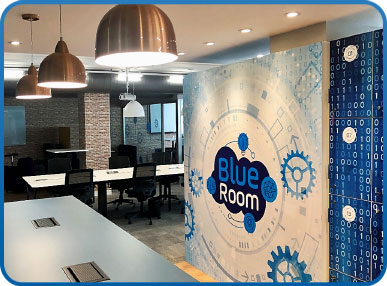
Both the new site as well as the On-line Resale are now using the Chatbot tool based on the use of artificial intelligence to qualify the service of partners and clients through the facilitated solution to inquiries. The technology generates instantaneous replies to various types of consultation without having to wait in line. The idea is that it will soon be possible to order gas through the Chatbot.
In relation to the business segment, Ultragaz invests continually in research and the development of new uses for LPG, offering innovative technological solutions for clients in different economic segments.
The development process is triggered by the identification of the needs of a range of different economic segments, new ideas being developed and prioritized for prototyping and transforming into solutions to be implemented and launched in the market.
In this context, seven solutions were launched during the year, the highlight being the Ultrasolution Barbecue (Ultrasolução Churrasco), which brings additional advantages such as immediate burner ignition and temperature control to evenly roast meat. In addition, the technology does not produce soot or smoke, eliminating the need for maintaining a stock of charcoal. Another solution which also brings benefits to clients is the Ultrasolution Coffee Roasting (Ultrasolução Torra do Café) for the online control of the roasting process with gains in energy efficiency, process standardization, greater resistance of the cellular wall of the grains and adding important aromatic notes to the final product.
In 2018, Ultragaz held its first hackathon for talented youth entrepreneurs in a “design thinking” marathon, the aim of which is to look for innovative solutions in products, processes and services for strategic segments in just two days. This activity took place at the Instituto Mauá de Tecnologia and involved students from the Engineering, Administration and Design graduation courses split into multidisciplinary groups. At the end of the event, three groups were awarded prizes and their projects are now undergoing feasibility studies at Ultragaz.
Social projects supported and/or developed by Ultragaz can be divided into three fronts: a) education and culture for children, youth and adults drawn from the more vulnerable social classes either with a national or regional scope; b) support for socio-cultural development dedicated to the communities surrounding the Company’s units; and c) educative campaigns on health, wellbeing and environmental preservation, directed to society as a whole and with nationwide coverage.
In 2018, the Company began to prioritize projects focused on women’s empowerment. In this area, we began a partnership with Afesu – Women’s Association for Social and University Studies (Associação Feminina de Estudos Sociais e Universitários) –, focused on the support of socially vulnerable women – children, adolescents and adults – through the offer of training for entry to the labor market and promotion of socio-educative activities involving market experiences and interacting with courses in Excel, management skills, technology, computer skills, among other activities. During the year, Ultragaz supported the training of various women in south-side São Paulo (city) and established a partnership with the RME Women Entrepreneur Network (Rede Mulher Empreendedora), which coordinates actions for offering opportunities and fostering entrepreneurship among women in the city of Vila Velha (ES).
In 2018, the Company partnered the United Nations Children’s Fund (Unicef) for work in disseminating the mission of this UN body. This involved distributing information to clients and employees through the intermediary of an explanatory flier, also distributed to consumers’ households with indications on access to exclusive material for children’s toys and games. Ultragaz advertised the campaign on about a thousand of its own trucks and those of third parties.
Since 2009, Ultragaz has been a member of the On the Right Side (Na Mão Certa) business pact, set up by the Childhood NGO for combating sexual exploitation of children and adolescents on the highways. This initiative involves the continued education of truck drivers so that they become agents for protecting the rights of this vulnerable group in society and denouncing any suspicion or occurrences of crimes.
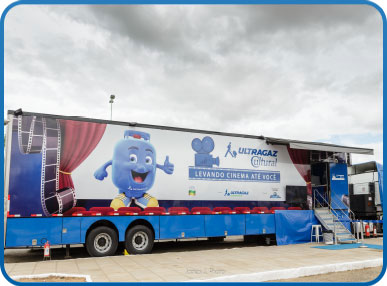
Initiatives for mitigating environmental risks and reducing the impact of Ultragaz’s operations include the preparation of studies ranging from the optimization of the distribution network to fleet renewal – with a consequent reduction in CO2 emissions.
GHG emissions (tCO2e) | 2016 | 2017 | 2018 |
Direct emissions (Scope 1) | 16,033 | 15,717 | 15,779 |
Indirect emissions (Scope 2) | 1,738 | 1,953 | 1,940 |
Total emissions | 17,771 | 17,670 | 17,719 |
Total per ton of commercialized product | 0.011 | 0.010 | 0.010 |
Since 2012, Ultragaz has been compensating carbon gas emissions through the socio-cultural projects that it sponsors. In joint work with the Iniciativa Verde NGO and as part of the Carbon Free Program, it plants trees in various locations such as São Carlos (SP), Campina Grande do Sul (PR), Formosa do Oeste (PR) and Extrema (MG) to neutralize the CO2 produced. In 2018, the Company planted trees to compensate the estimated 71.39 tons of CO2 issued by the “Cinema on the Highway” and “A Piano for the Road” projects.
The Collect Oil Campaign: Ultragaz Collects and Soya Recycles (Campanha Junte Óleo: Ultragaz Coleta e Soya Recicla) continued through 2018 in partnership with Bunge and the Instituto Triângulo. For every two liters of spent cooking oil contained in a PET bottle and delivered to the Ultragaz salesperson, the consumer receives two bars of biodegradable soap. Part of the oil collected is used for soap and the rest for biodiesel. The Company runs the campaign in the states of Ceará, Bahia, Minas Gerais, Pernambuco, Rio Grande do Sul and São Paulo.







IS014001 and OHSAS 18001 in Mauá: Ultragaz received certification under ISO14001 (environmental management system) and OHSAS 18001 (occupational health and safety management system).
Consumidor Moderno: the Consumidor Moderno magazine is one of the most traditional in the sector and annually polls the general public on companies in different segments. In the LPG sector, Ultragaz was recognized as the Company which most respects the consumer.
LPG Award: in partnership with its suppliers, Ultragaz was recognized with the LPG Award in technology and innovation with 15 trophies in the Management, Production, Installations, Logistics, Healthcare, Safety and Environment categories.
State of São Paulo Governor’s Trophy: Ultragaz’s management was also recognized with three State of São Paulo Governor’s trophies by the Instituto Paulista de Excelência da Gestão – IPEG in the markets (ISP Domiciliar, GSP ,Domiciliar and Campinas Domiciliar).
Best in Management Trophy (PNQ): Domestic market ISP won the premium management award.